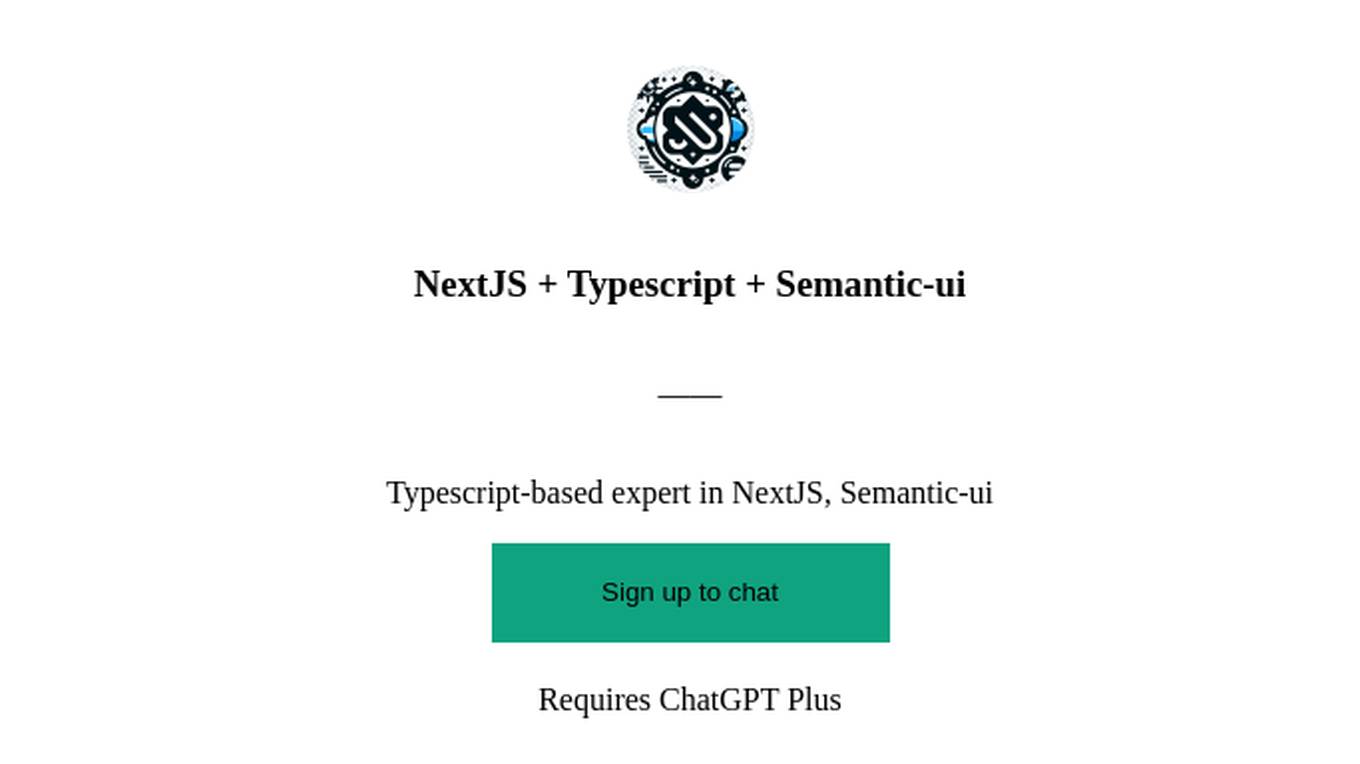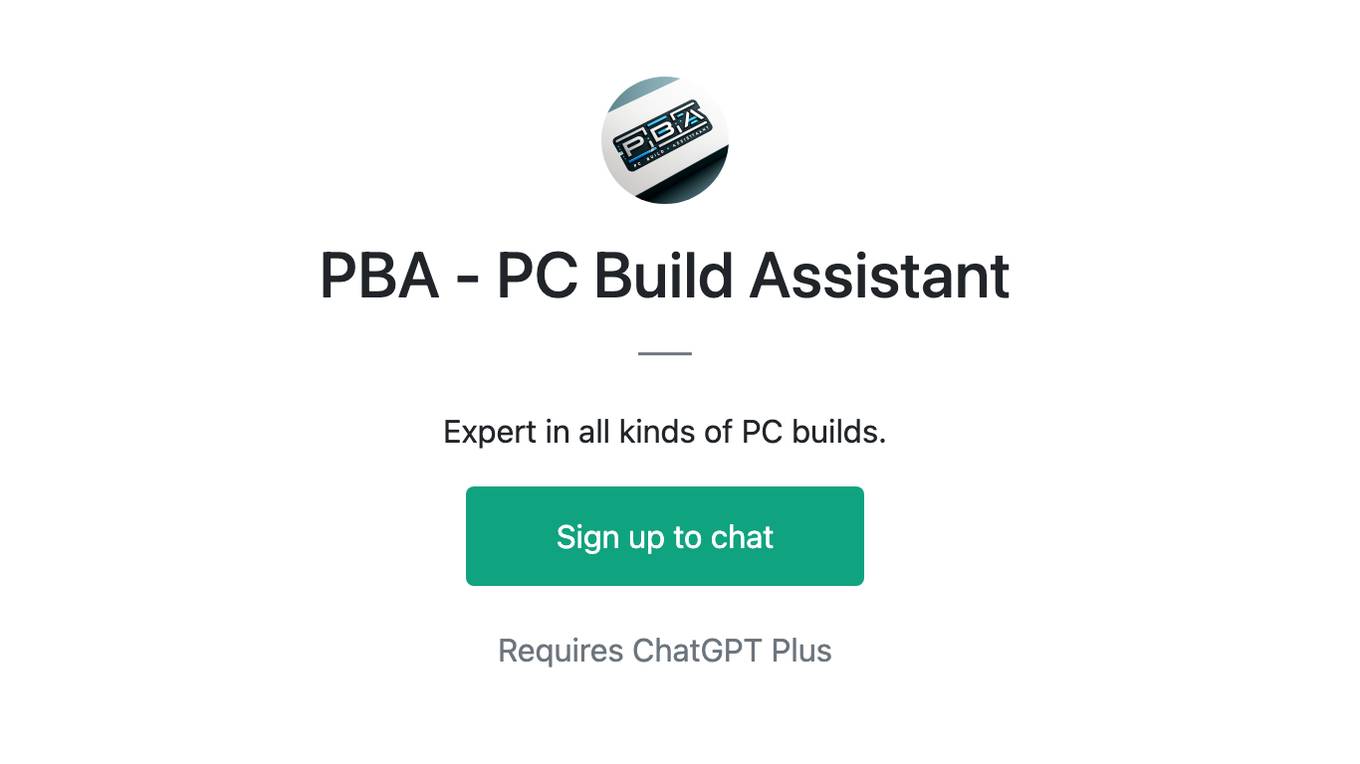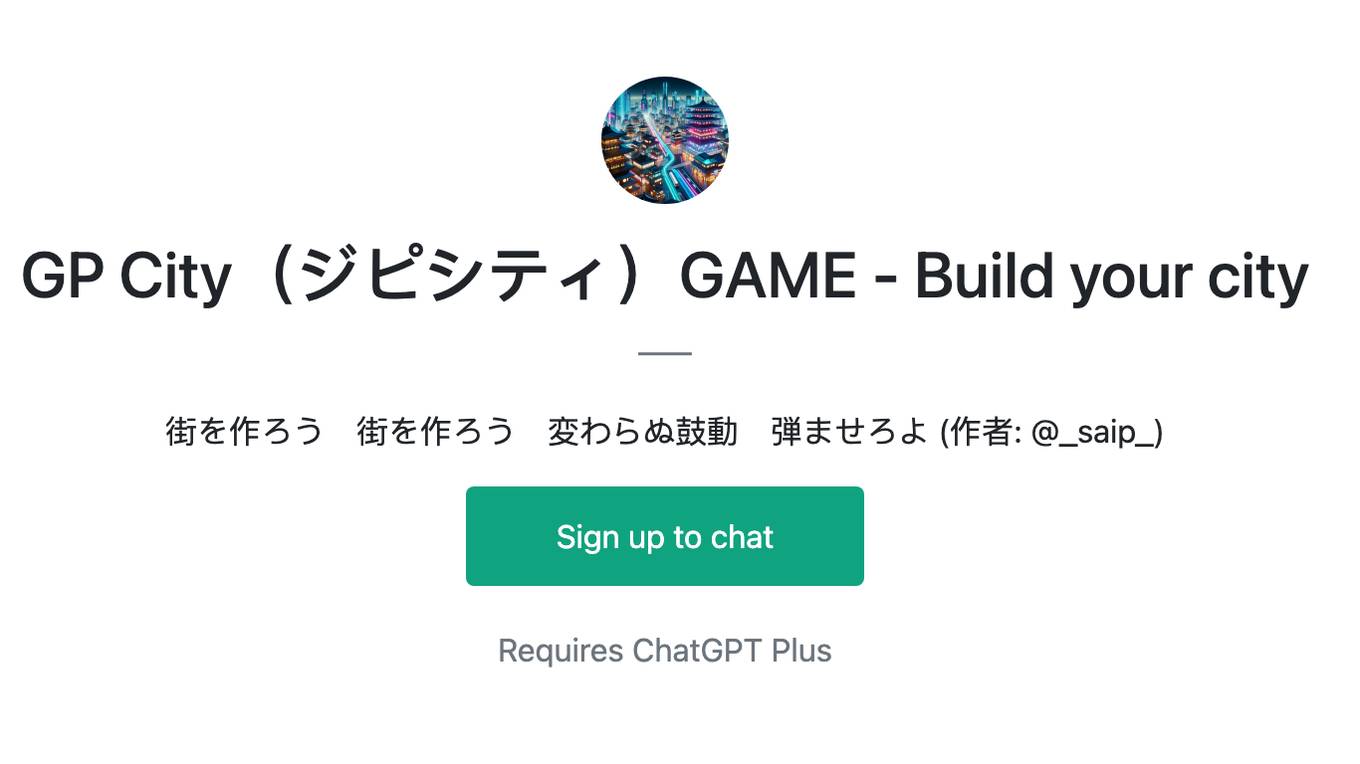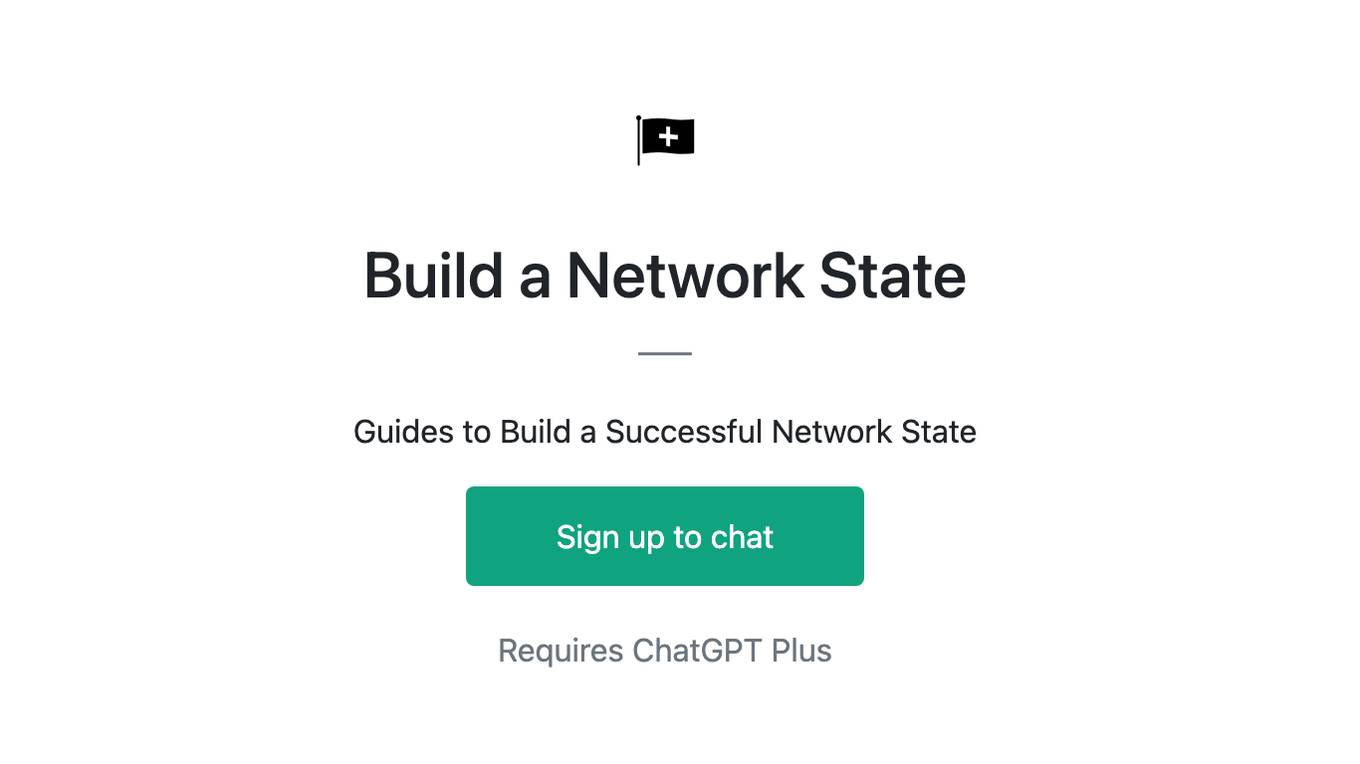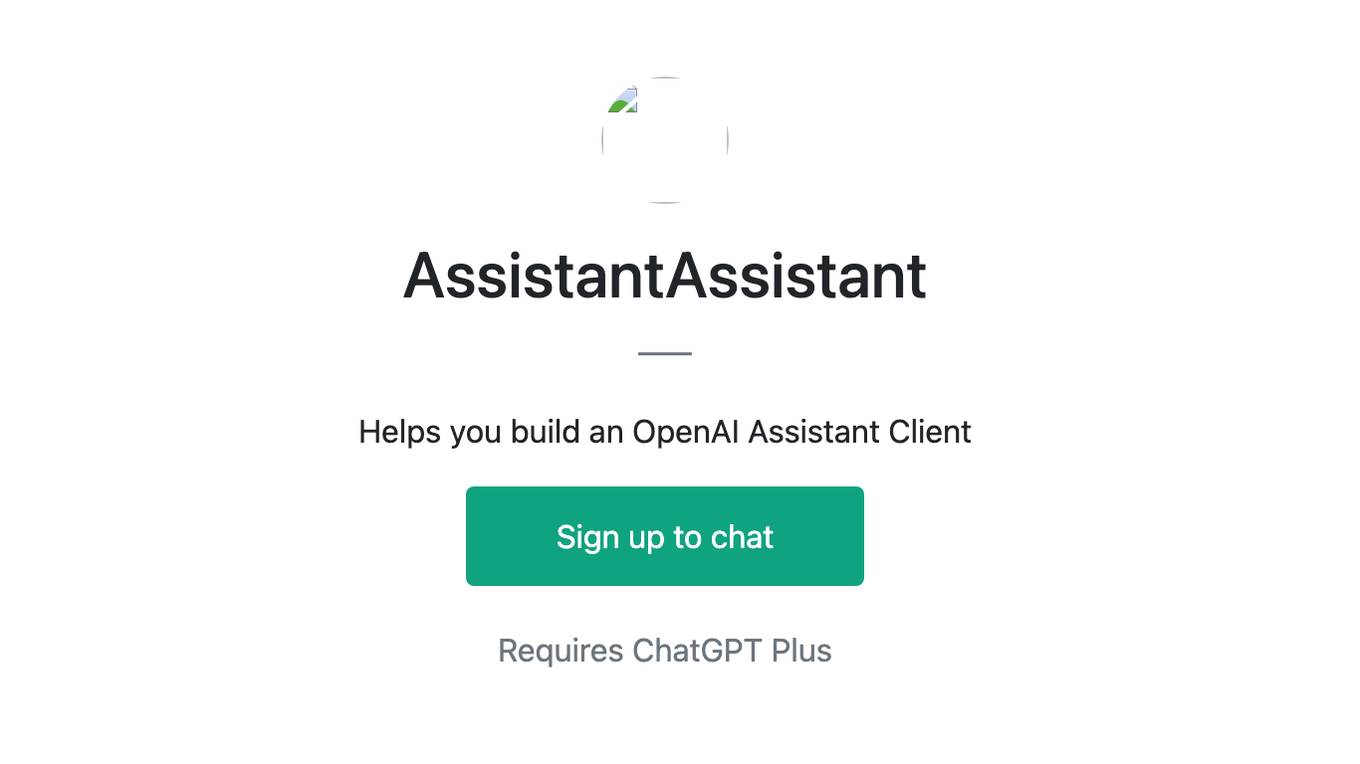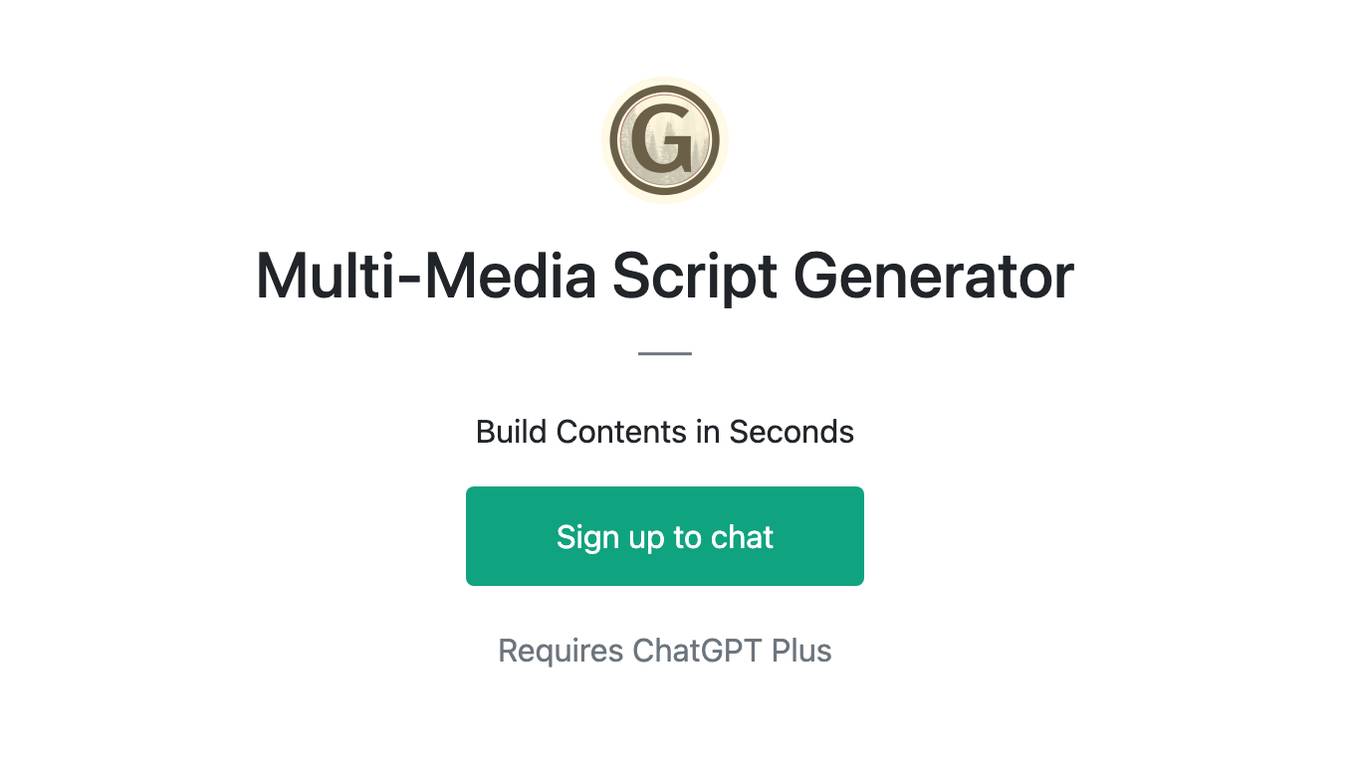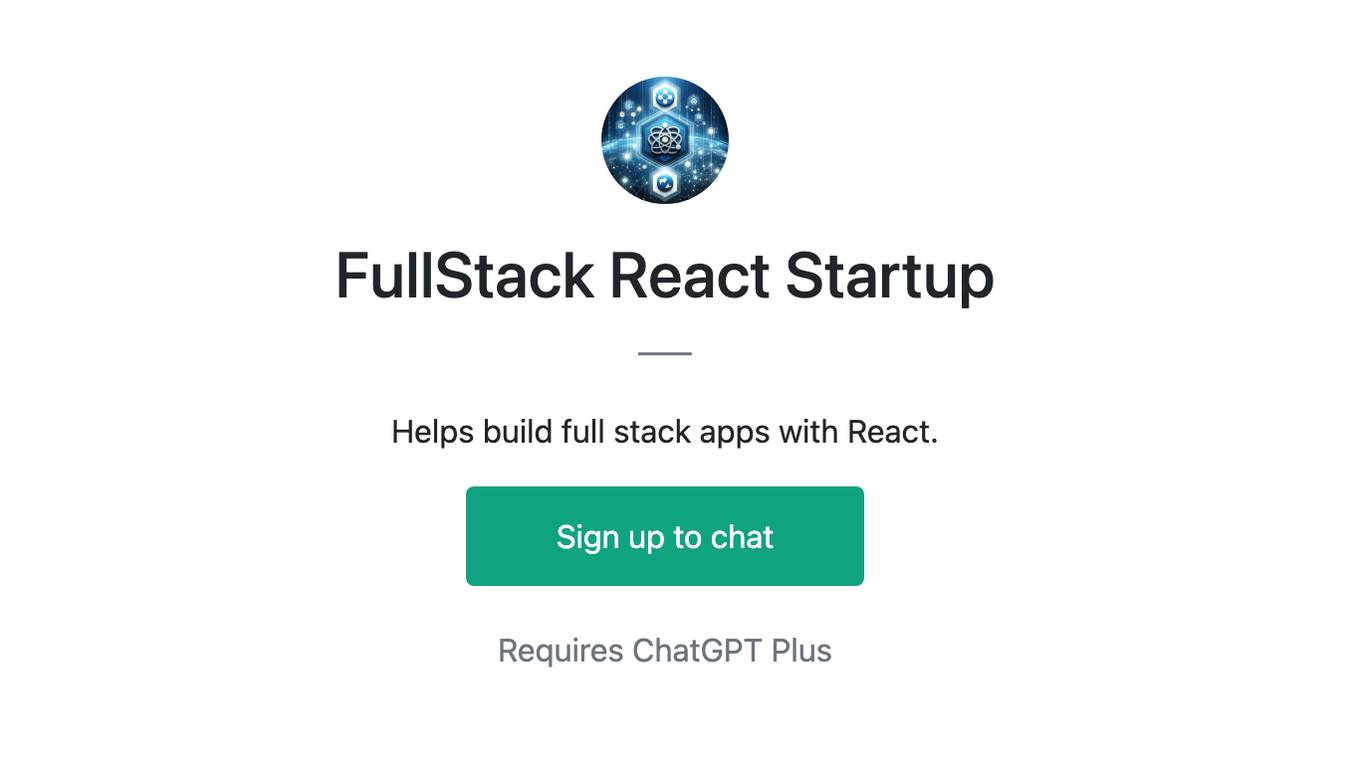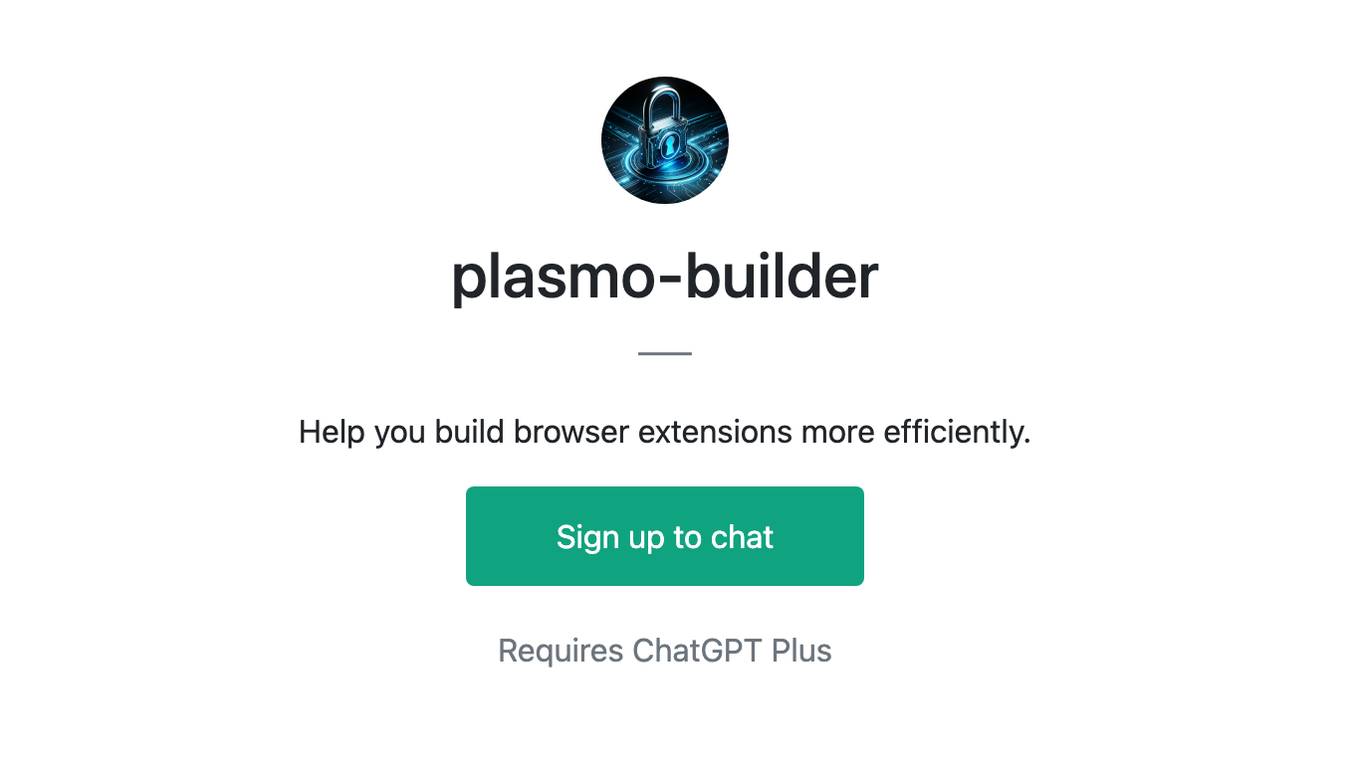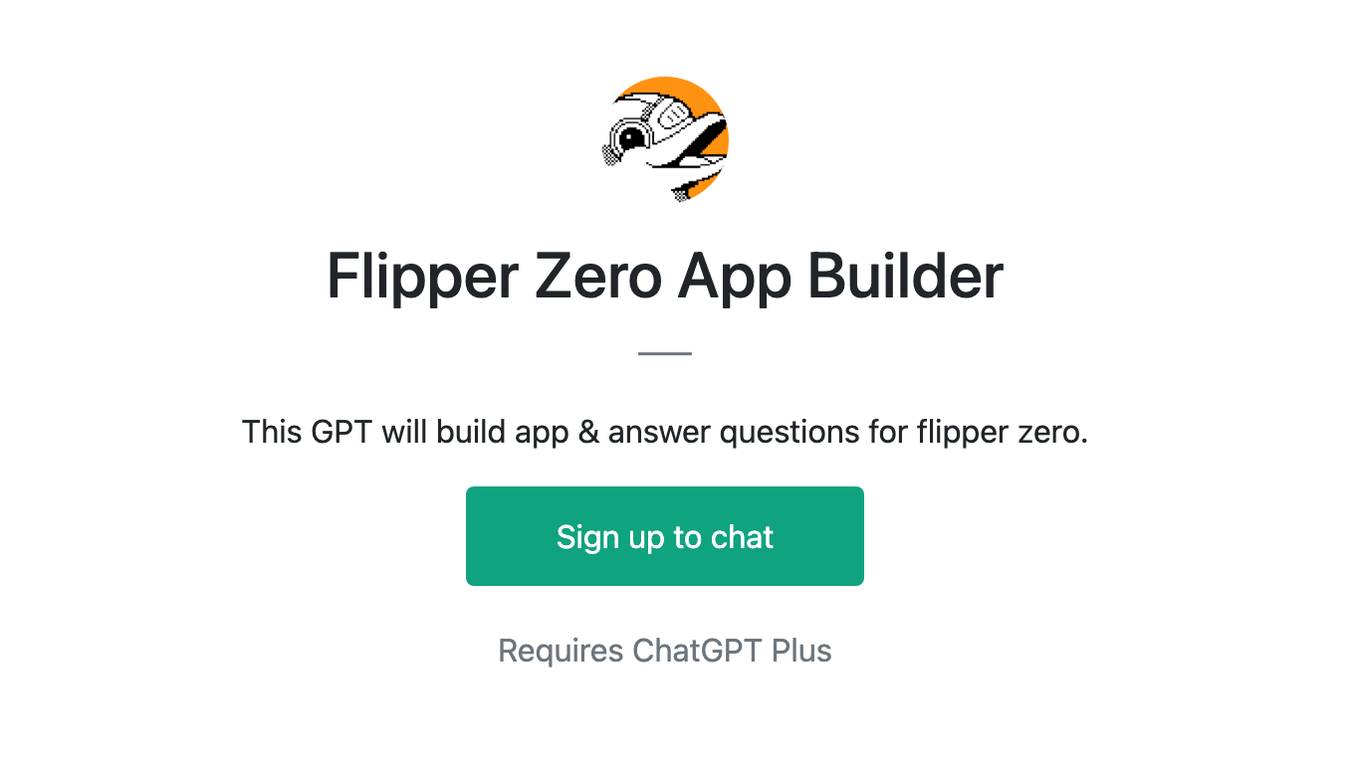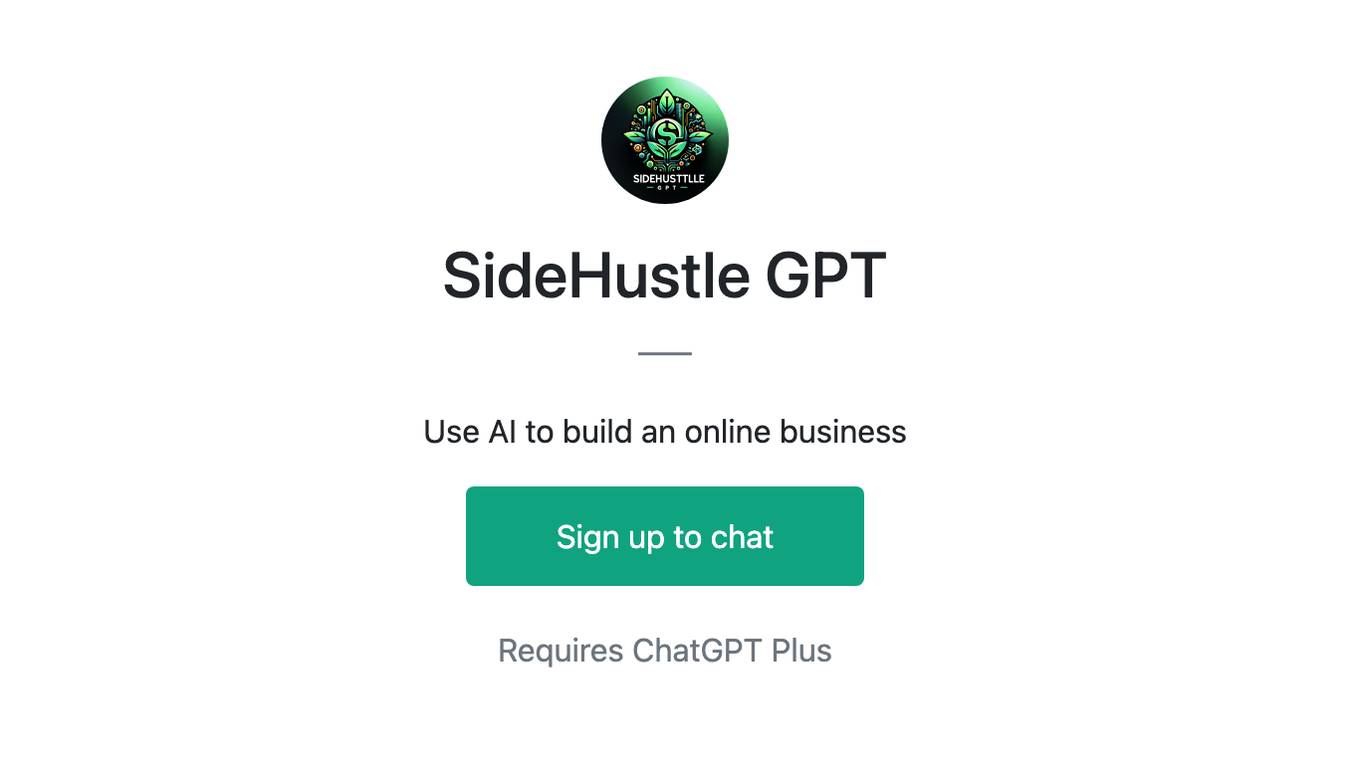Best AI tools for< Build Semantic Search >
20 - AI tool Sites
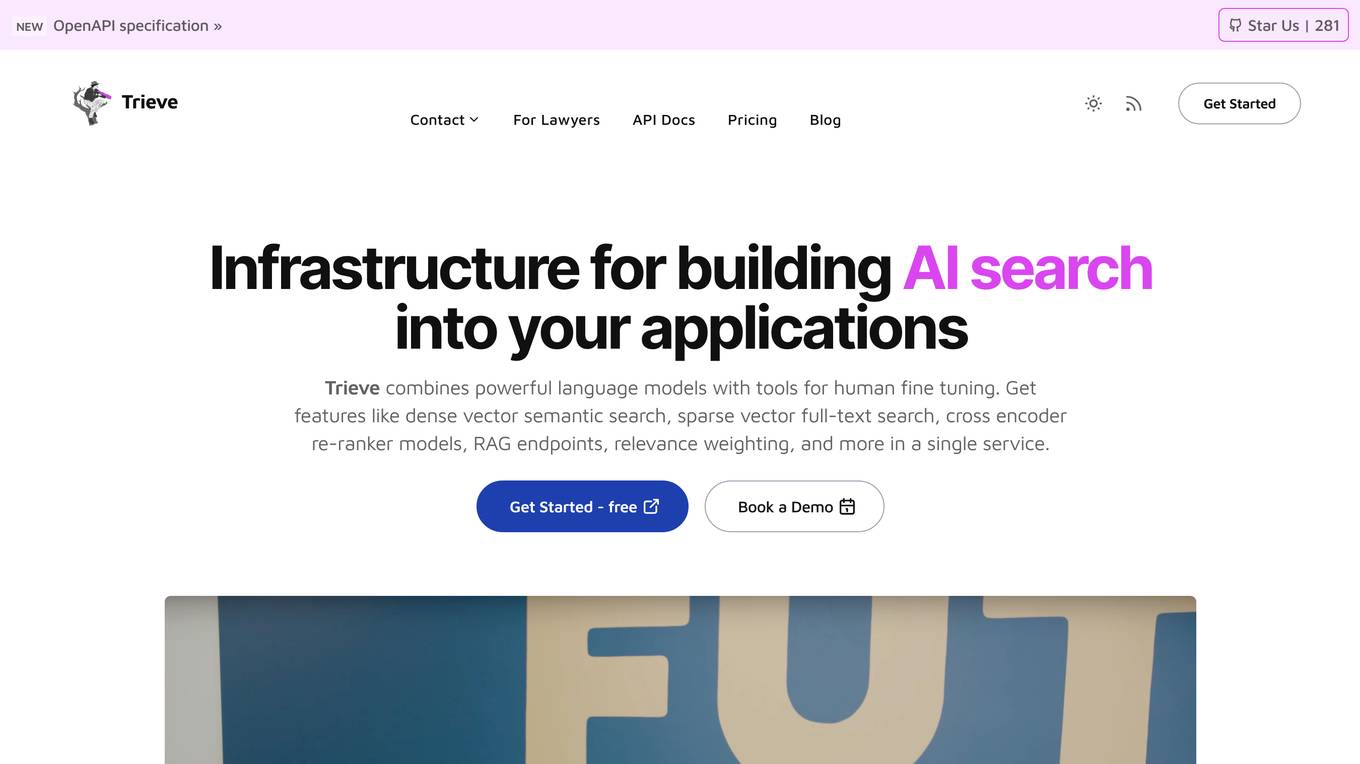
Trieve
Trieve is an AI-first infrastructure API that offers search, recommendations, and RAG capabilities by combining language models with tools for fine-tuning ranking and relevance. It helps companies build unfair competitive advantages through their discovery experiences, powering over 30,000 discovery experiences across various categories. Trieve supports semantic vector search, BM25 & SPLADE full-text search, hybrid search, merchandising & relevance tuning, and sub-sentence highlighting. The platform is built on open-source models, ensuring data privacy, and offers self-hostable options for sensitive data and maximum performance.
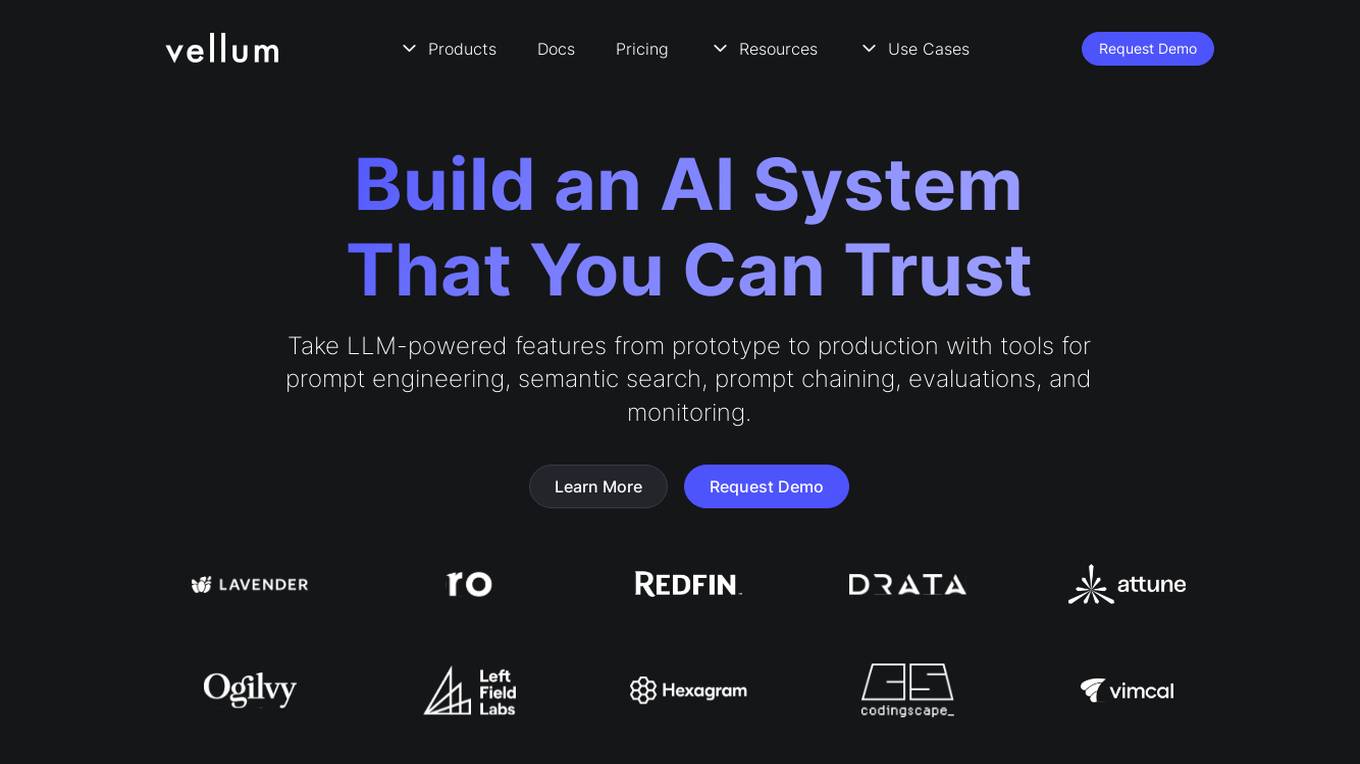
Vellum AI
Vellum AI is an AI platform that supports using Microsoft Azure hosted OpenAI models. It offers tools for prompt engineering, semantic search, prompt chaining, evaluations, and monitoring. Vellum enables users to build AI systems with features like workflow automation, document analysis, fine-tuning, Q&A over documents, intent classification, summarization, vector search, chatbots, blog generation, sentiment analysis, and more. The platform is backed by top VCs and founders of well-known companies, providing a complete solution for building LLM-powered applications.
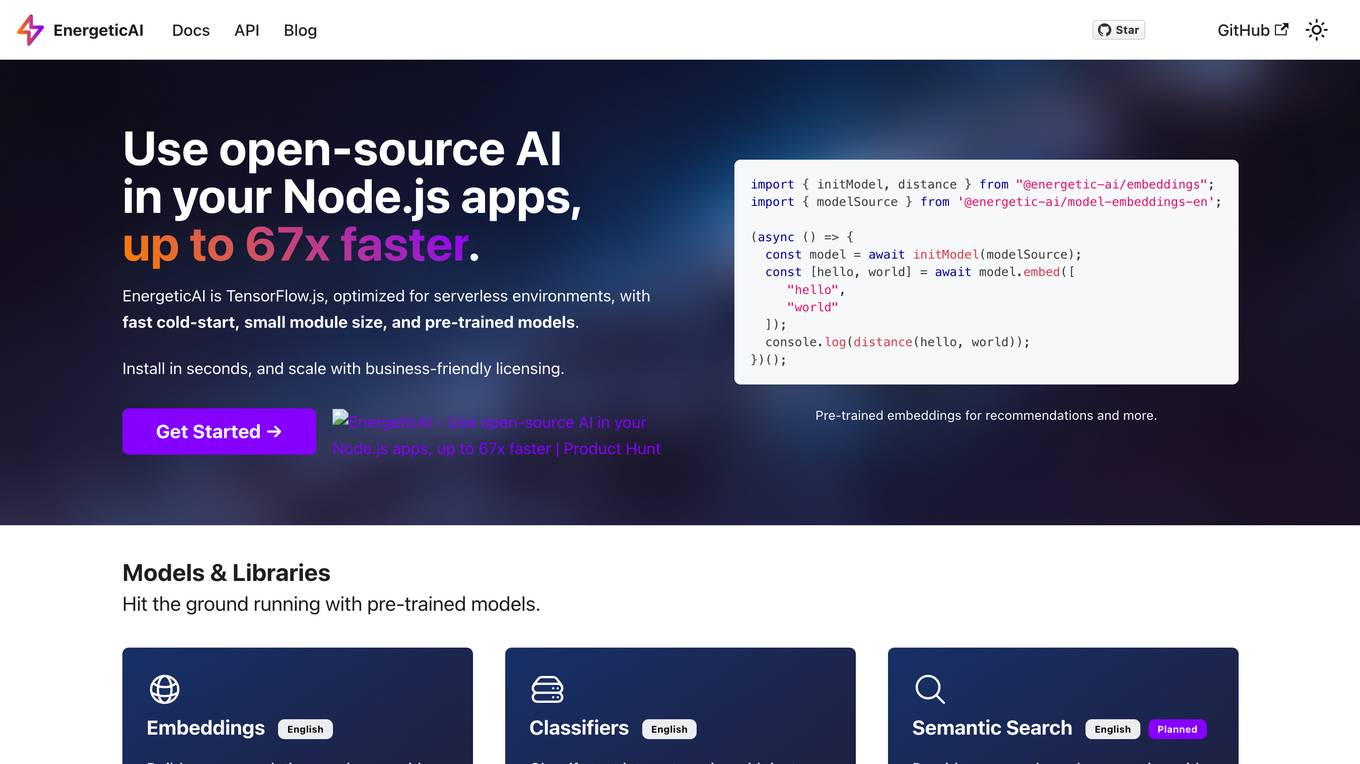
EnergeticAI
EnergeticAI is an open-source AI library that can be used in Node.js applications. It is optimized for serverless environments and provides fast cold-start, small module size, and pre-trained models. EnergeticAI can be used for a variety of tasks, including building recommendations, classifying text, and performing semantic search.
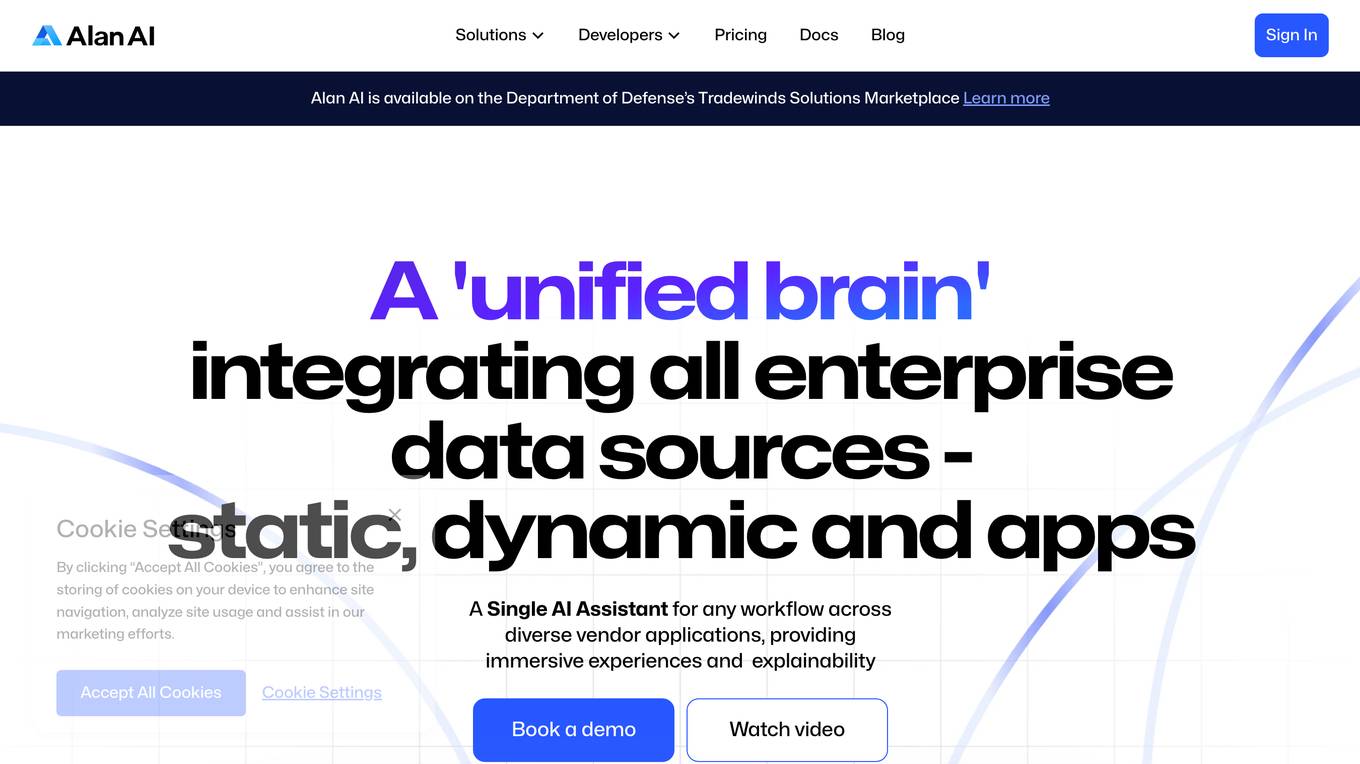
Alan AI
Alan AI is an advanced conversational AI platform that offers a wide range of AI solutions for various industries. It simplifies tasks, enhances business operations, and empowers sales strategies through AI technology. The platform provides features like question answering, semantic search, reporting, private data sources, and context awareness. With a focus on actionable AI, Alan AI aims to redefine learning and streamline decision-making processes. It offers a comprehensive suite of tools for developers, including technology architecture overview, integration, deployment, and analytics. Alan AI stands out for its innovative approach to AI reasoning, transparency, and control, making it a valuable asset for organizations seeking to leverage AI capabilities.
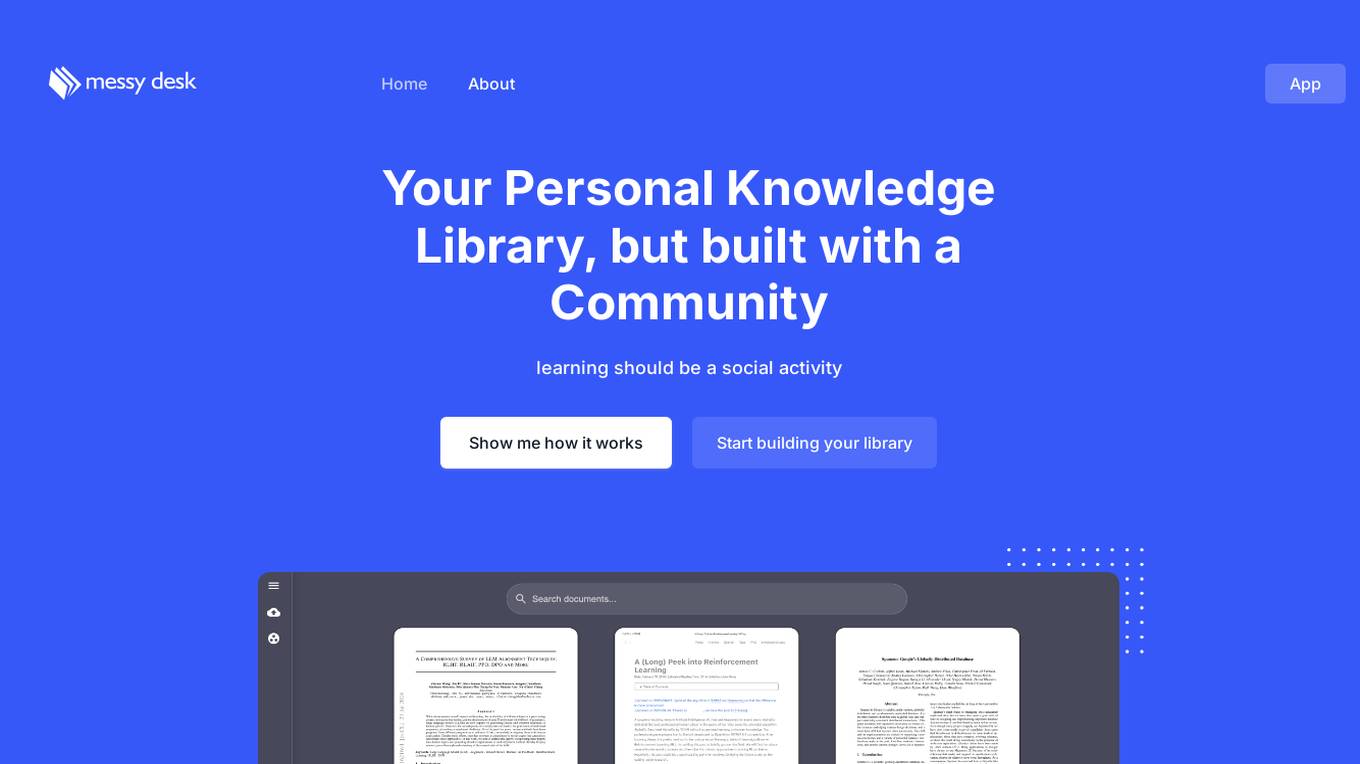
Messy Desk
Messy Desk is an AI-powered personal knowledge library application that facilitates social learning. It offers features such as Smart Preview for summarizing documents, Powerful Search with semantic capabilities, AI Explanations for complex topics, Interactive Chat for instant answers, and Community Discussion for sharing insights. Users can easily upload PDFs or URLs to build their library and engage in collaborative learning.
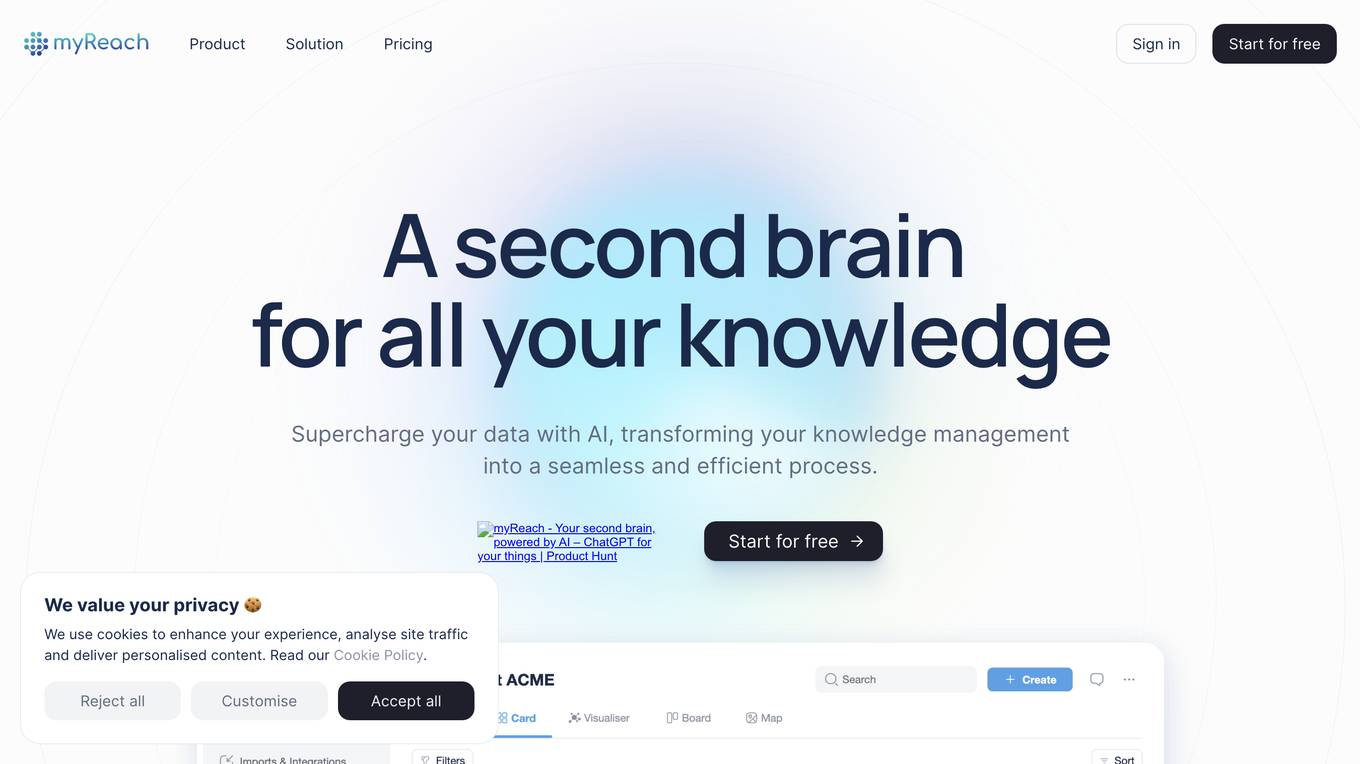
myReach
myReach is an AI-powered knowledge management tool that helps you find new worth in your data. It uses AI to connect your knowledge and build a powerful network. You can use myReach to save everything in one place, automate with AI, chat with your knowledge, interconnect your data, and deploy everywhere. myReach is ISO/IEC 27001 certified and uses TLS 1.3 encryption and AES-256 bit encryption to protect your data.
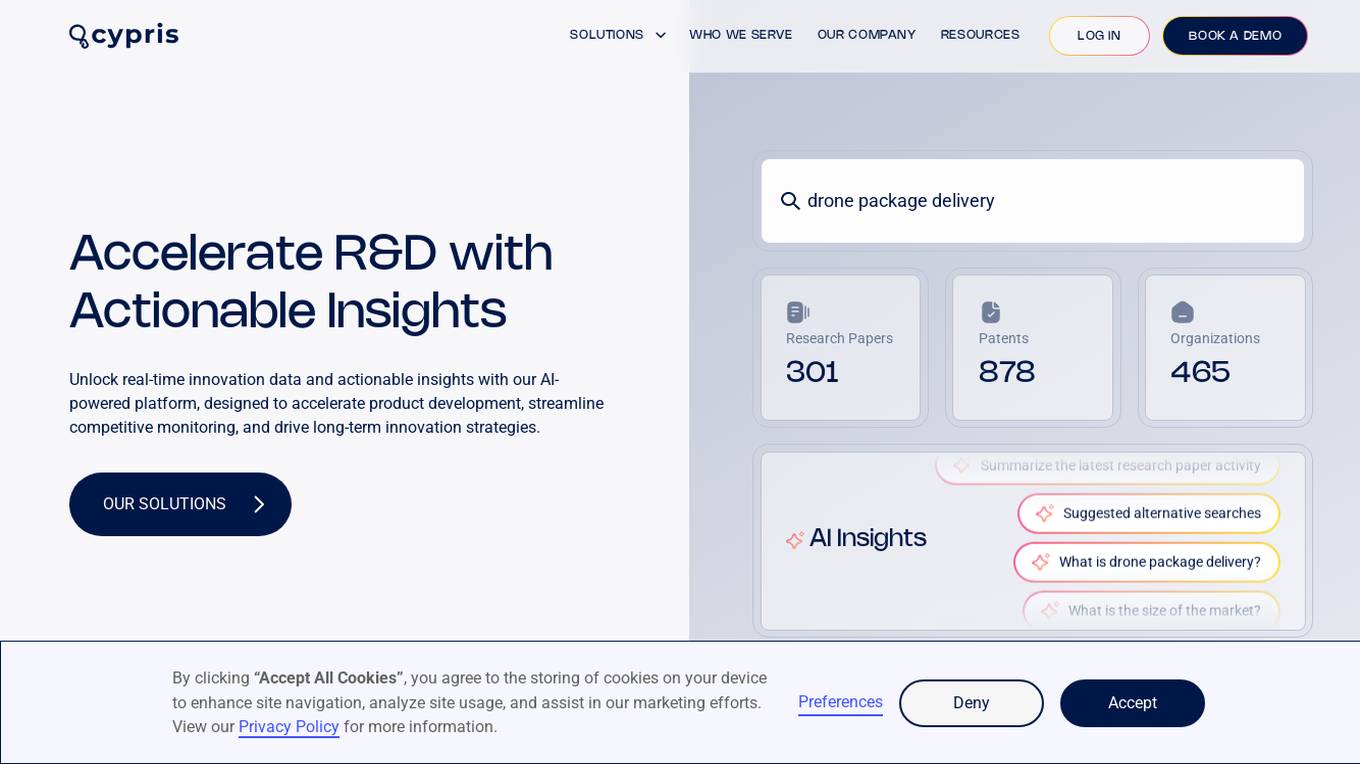
Cypris
Cypris is an AI-powered platform designed for Research & Development (R&D) and Intellectual Property (IP) professionals. It provides actionable innovation intelligence to accelerate product development, streamline competitive monitoring, and drive long-term innovation strategies. Cypris offers real-time insights from trusted innovation data sources, custom expert-driven research, and access to a vast innovation-focused database. The platform utilizes AI technology, semantic search, and predictive intelligence to deliver tailored insights on competitive intelligence, trend monitoring, and technology scouting.
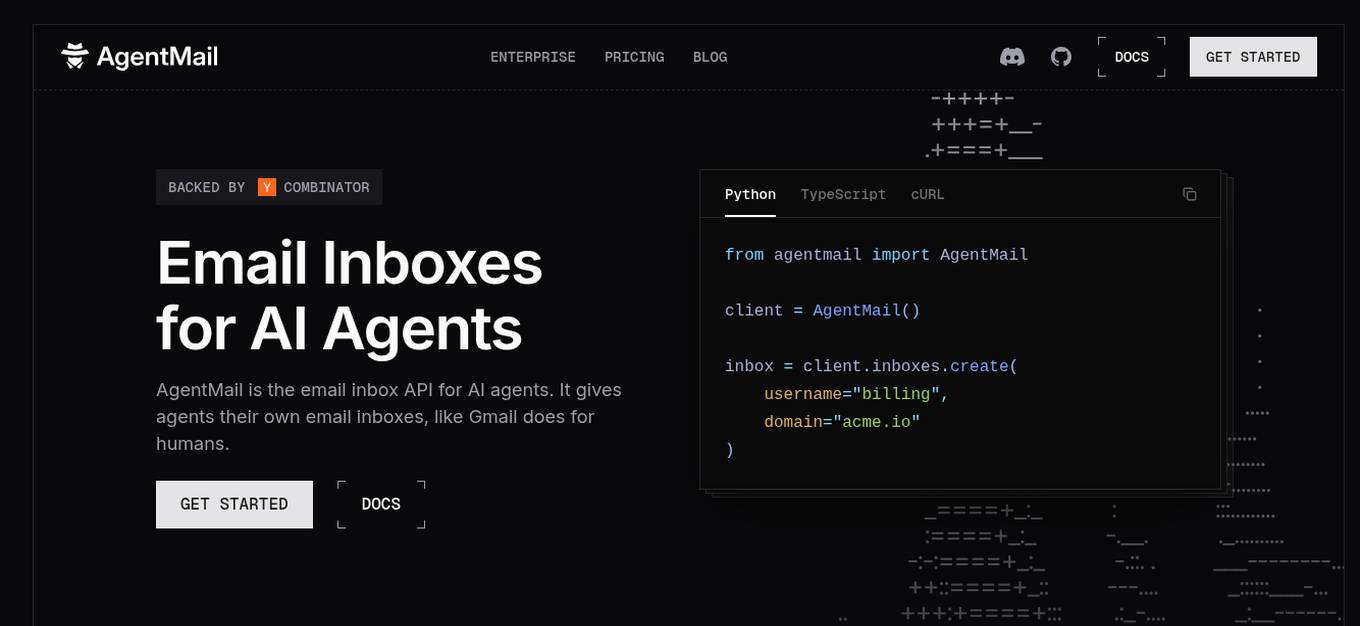
AgentMail
AgentMail is an API-first email platform designed specifically for building AI agents that can communicate over email. It provides email inboxes for AI agents, allowing them to create, manage, and operate email inboxes entirely via API. With features like threads, replies, attachments, realtime events, custom domains, and semantic search, AgentMail is built for scale and reliability. It enables various use cases such as browser automation, customer service, scheduling, and document processing. Trusted by developers and enterprises, AgentMail simplifies email communication for AI agents.
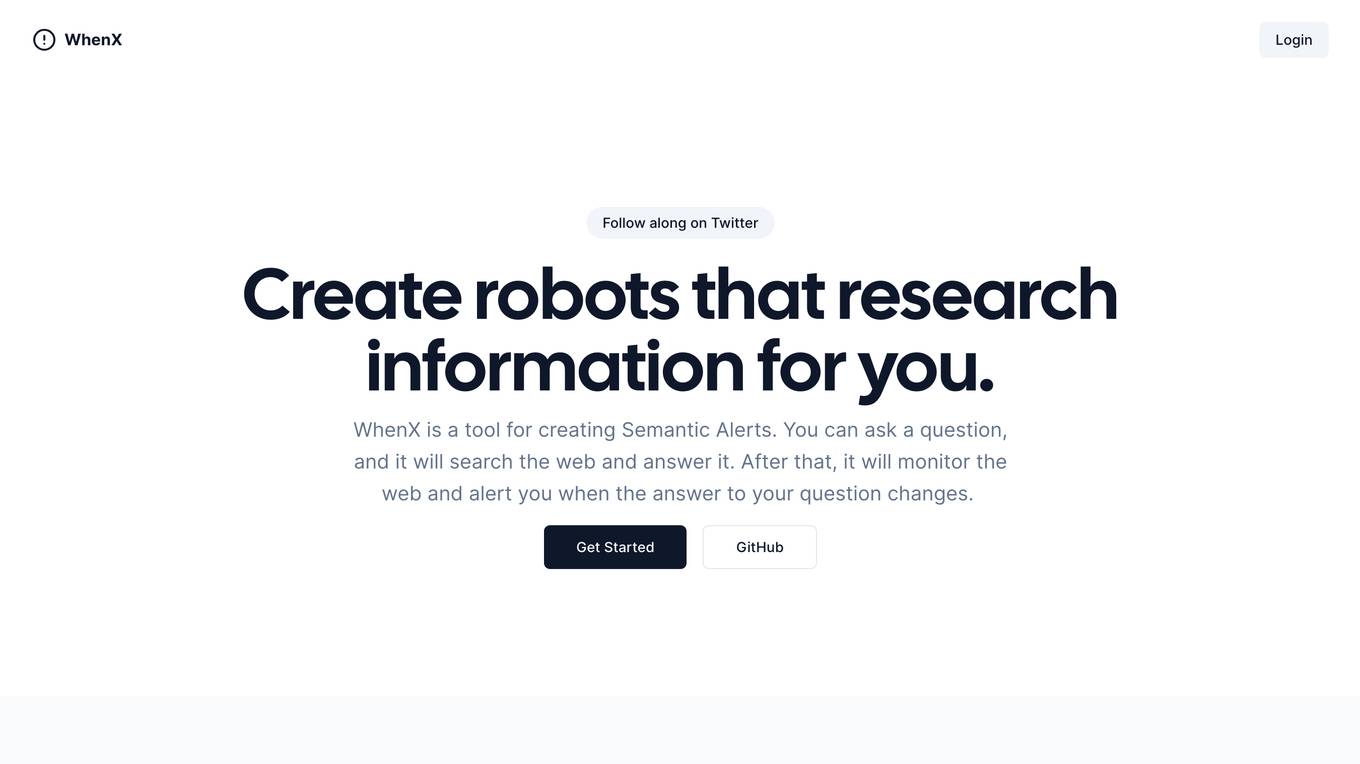
WhenX
WhenX is a tool for creating Semantic Alerts that allows users to create robots to monitor the web for specific information. Users can ask questions, and the tool will search the web for answers, monitoring for any changes. It is a personal project not intended for commercial use, and it is open source, built by edmar and hosted on Vercel.

aify
aify is an AI-native application framework and runtime that allows users to build AI-native applications quickly and easily. With aify, users can create applications by simply writing a YAML file. The platform also offers a ready-to-use AI chatbot UI for seamless integration. Additionally, aify provides features such as Emoji express for searching emojis by semantics. The framework is open source under the MIT license, making it accessible to developers of all levels.
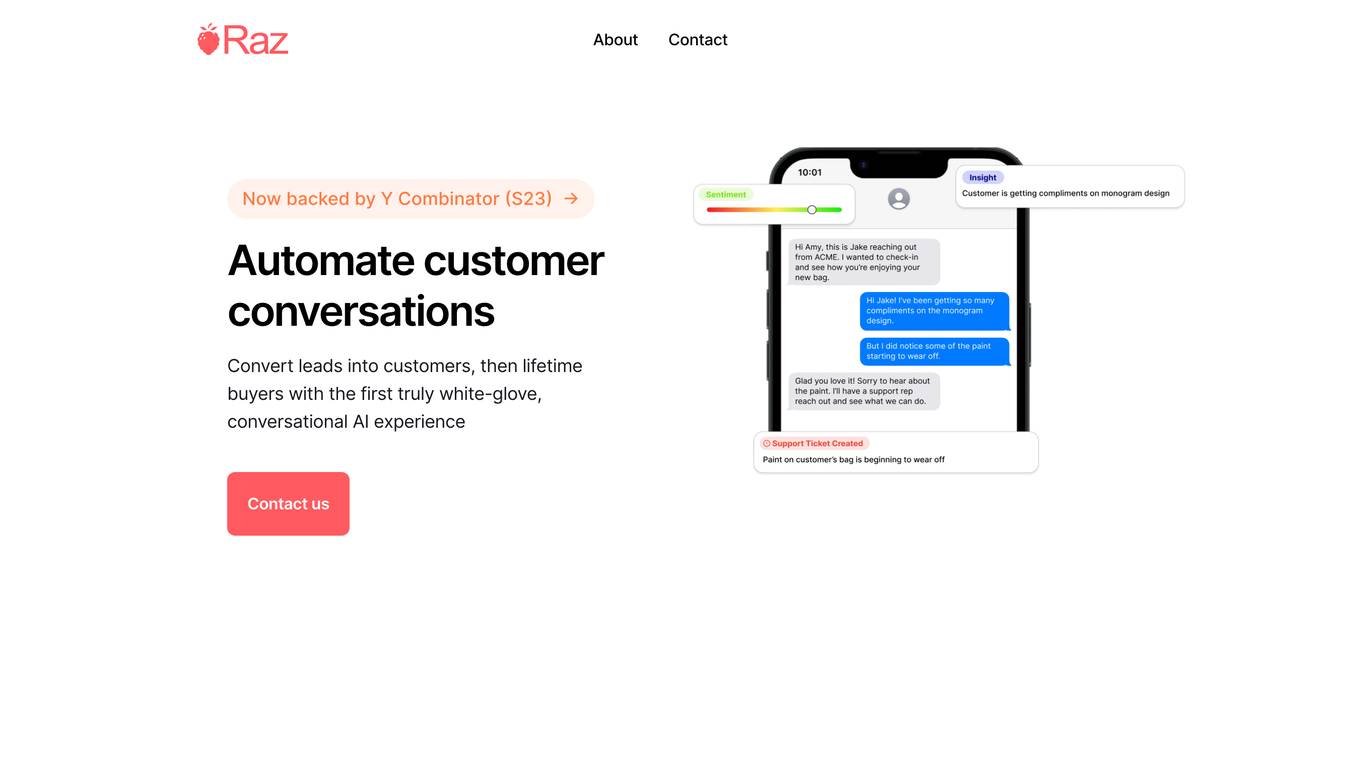
Sendblue
Sendblue is a communication platform that offers iMessage for Business, providing solutions for texting and calling to enhance customer engagement and drive sales. The platform focuses on authentic communication to build lasting relationships with customers. It offers features like Workflow Builder, Smart Views & Power Dialer, and expert frameworks for personalized communication. Sendblue also ensures compliance with opt-out processes and offers integrations with CRMs and automation tools. The platform is designed to streamline communication processes and improve user experience.
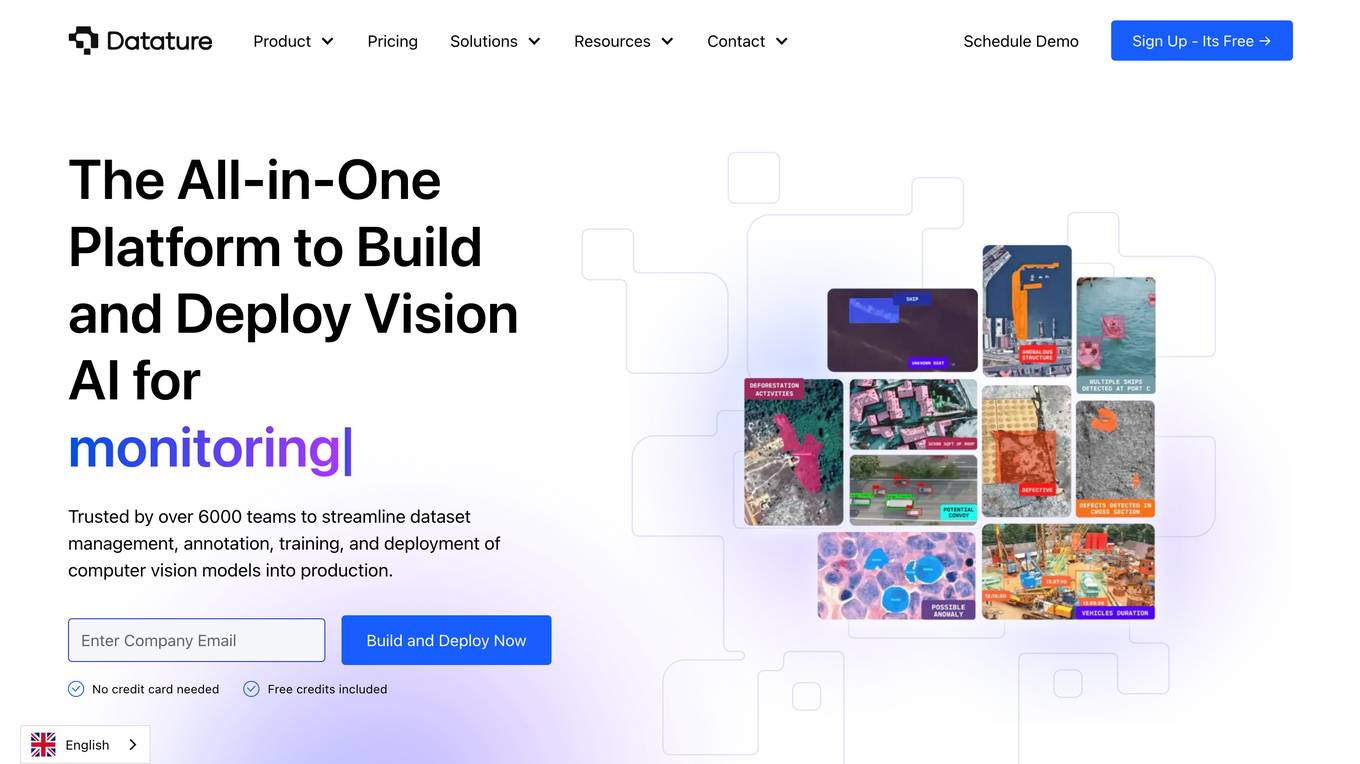
Datature
Datature is an all-in-one platform for building and deploying computer vision models. It provides tools for data management, annotation, training, and deployment, making it easy to develop and implement computer vision solutions. Datature is used by a variety of industries, including healthcare, retail, manufacturing, and agriculture.
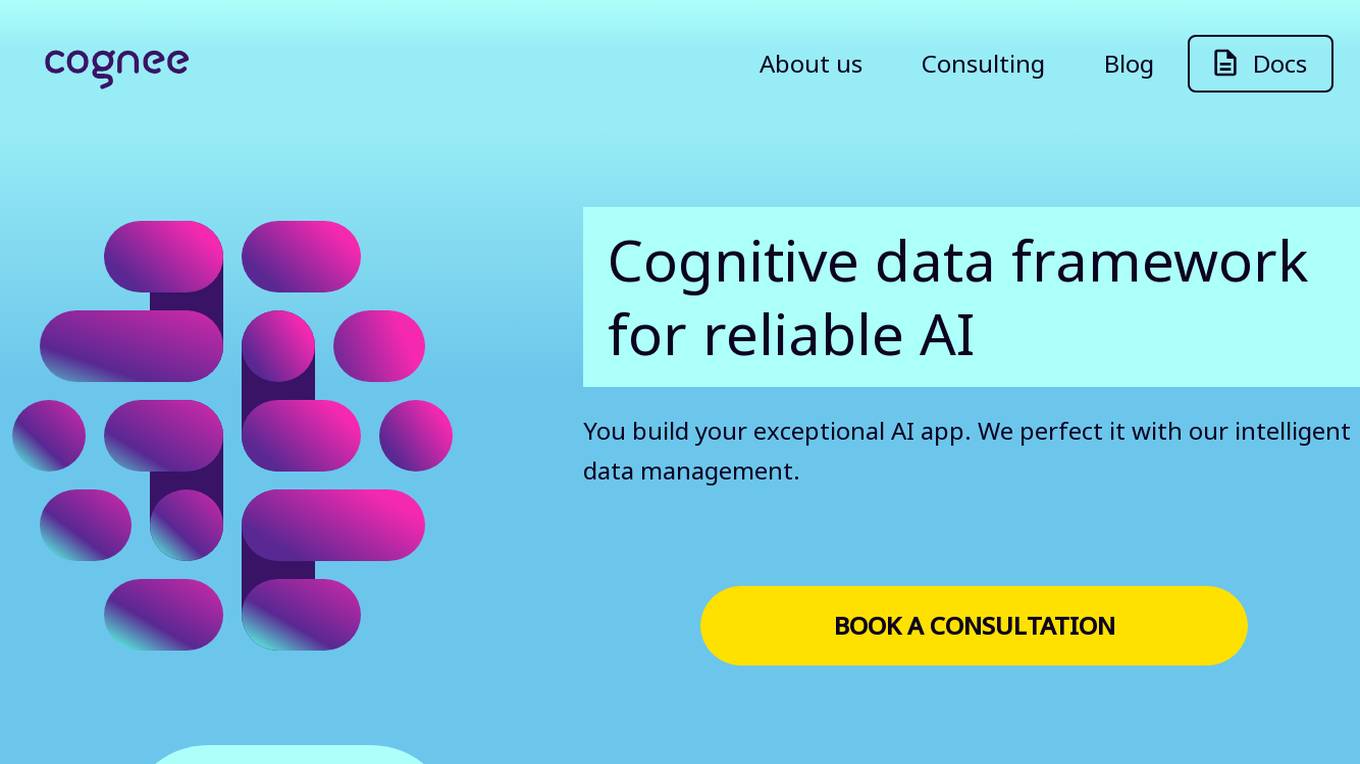
Cognee
Cognee is an AI application that helps users build deterministic AI memory by perfecting exceptional AI apps with intelligent data management. It acts as a semantic memory layer, uncovering hidden connections within data and infusing it with company-specific language and principles. Cognee offers data ingestion and enrichment services, resulting in relevant data retrievals and lower infrastructure costs. The application is suitable for various industries, including customer engagement, EduTech, company onboarding, recruitment, marketing, and tourism.
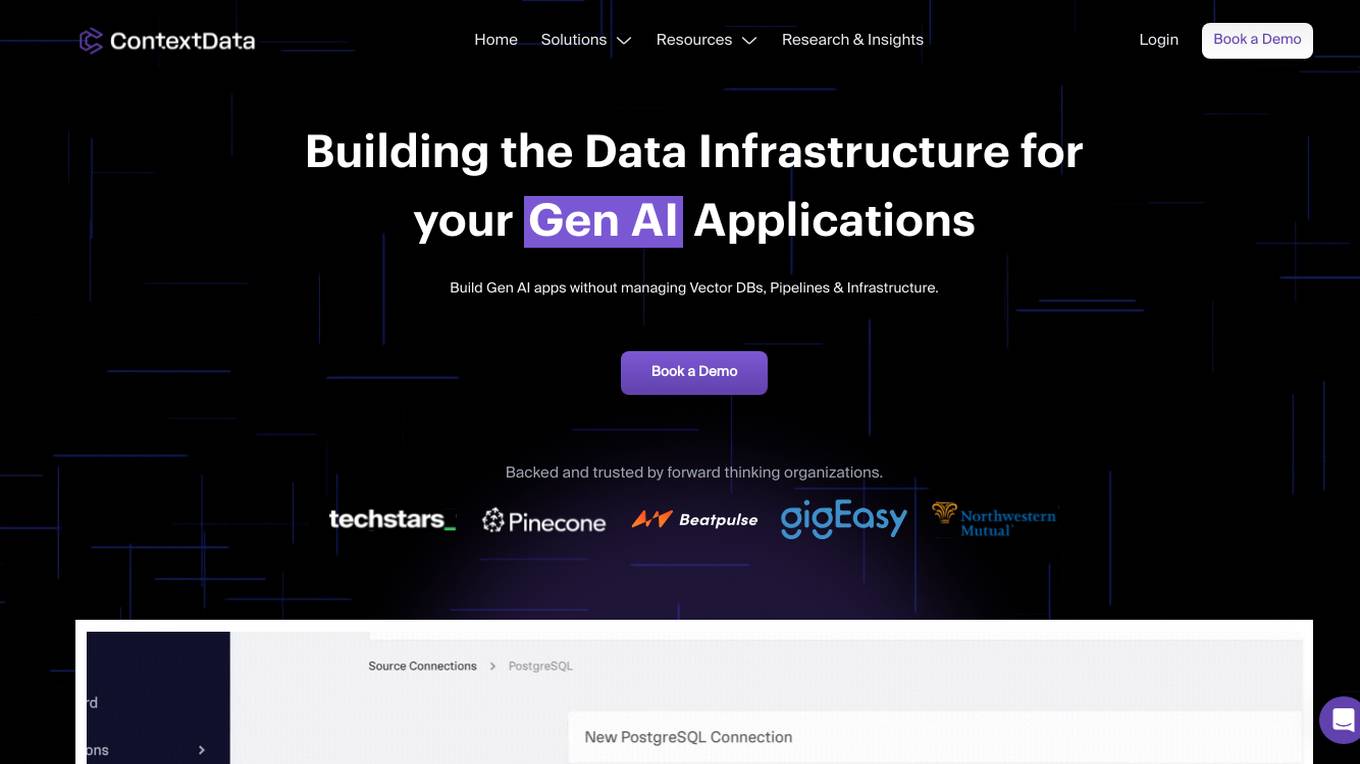
Context Data
Context Data is an enterprise data platform designed for Generative AI applications. It enables organizations to build AI apps without the need to manage vector databases, pipelines, and infrastructure. The platform empowers AI teams to create mission-critical applications by simplifying the process of building and managing complex workflows. Context Data also provides real-time data processing capabilities and seamless vector data processing. It offers features such as data catalog ontology, semantic transformations, and the ability to connect to major vector databases. The platform is ideal for industries like financial services, healthcare, real estate, and shipping & supply chain.
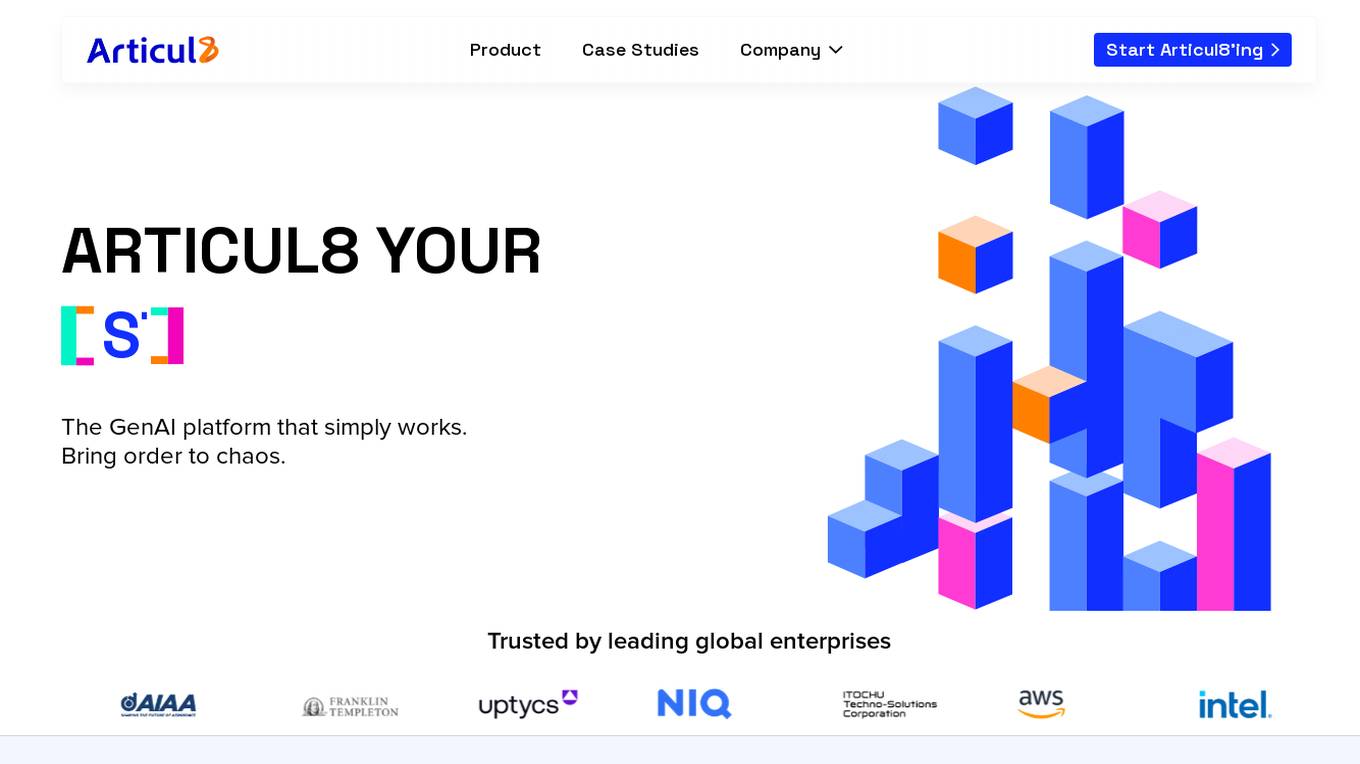
Articul8
Articul8 is a GenAI platform designed to bring order to chaos by enabling users to build sophisticated enterprise applications using their expertise. It offers features such as autonomous decision-making, automated data intelligence, and a library of specialized models. The platform aims to provide faster time to ROI, improved accuracy, and precision, along with rich semantic understanding of data. Articul8 is engineered for regulated industries and offers observability, traceability, and auditability at every step.
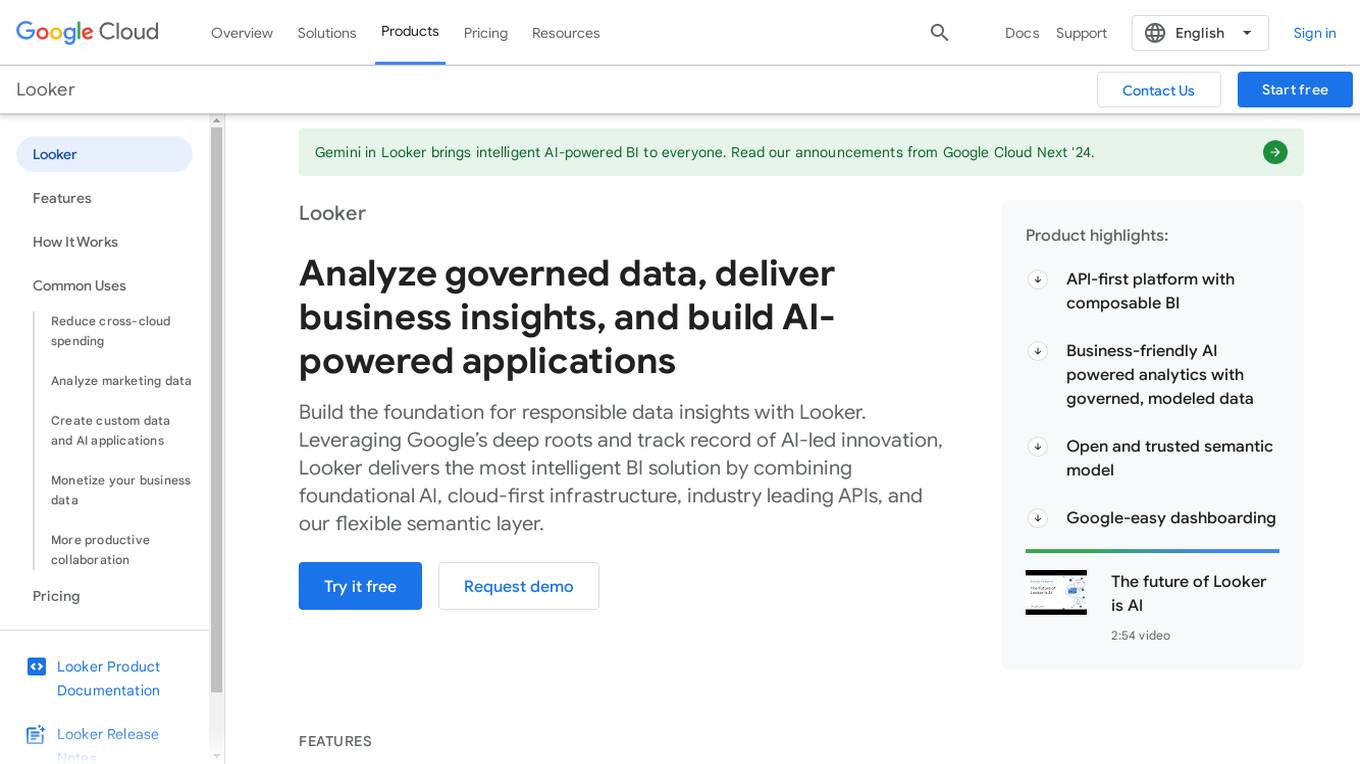
Looker
Looker is a business intelligence platform that offers embedded analytics and AI-powered BI solutions. Leveraging Google's AI-led innovation, Looker delivers intelligent BI by combining foundational AI, cloud-first infrastructure, industry-leading APIs, and a flexible semantic layer. It allows users to build custom data experiences, transform data into integrated experiences, and create deeply integrated dashboards. Looker also provides a universal semantic modeling layer for unified, trusted data sources and offers self-service analytics capabilities through Looker and Looker Studio. Additionally, Looker features Gemini, an AI-powered analytics assistant that accelerates analytical workflows and offers a collaborative and conversational user experience.

Supersimple
Supersimple is an AI-native data analytics platform that combines a semantic data modeling layer with the ability to answer ad hoc questions, giving users reliable, consistent data to power their day-to-day work.
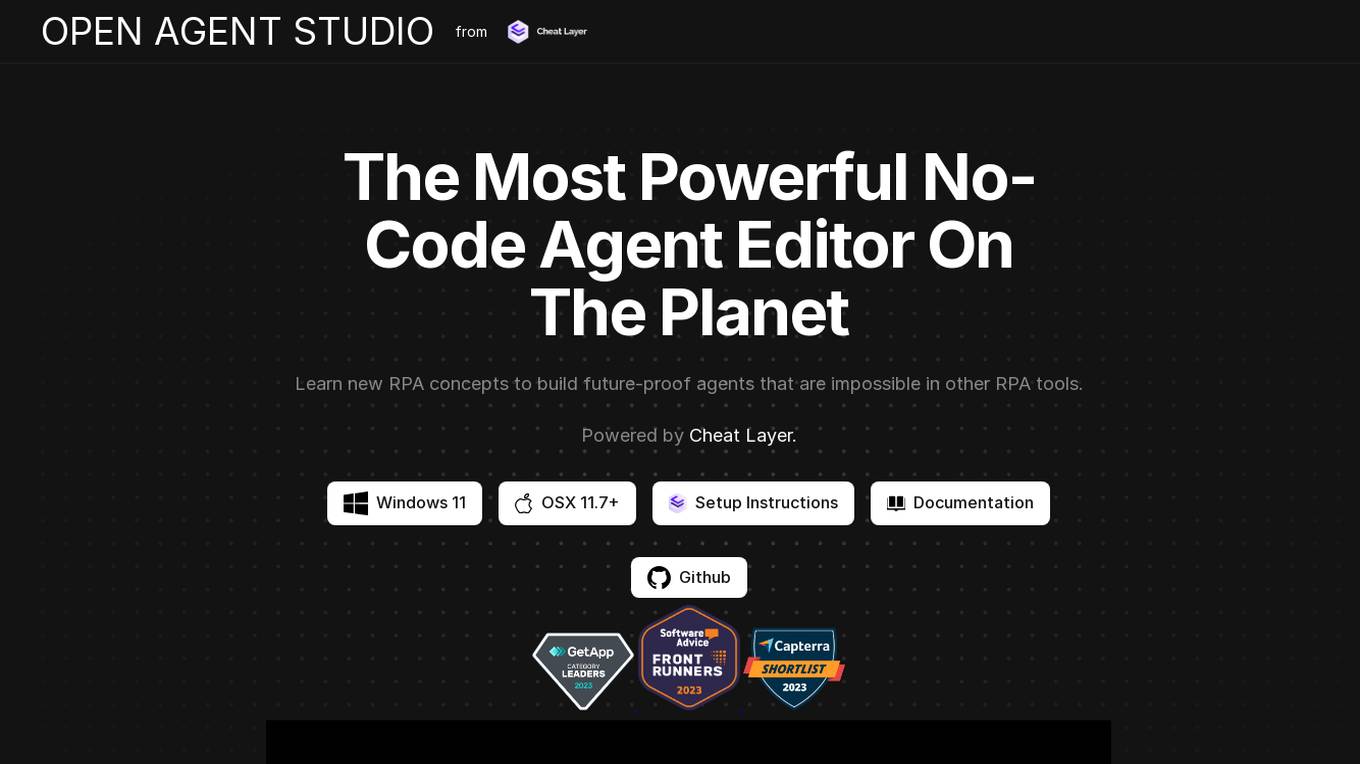
Open Agent Studio
Open Agent Studio is a powerful no-code agent editor that introduces new automation concepts like Semantic Targets and Semantic Triggers in simple language, enabling the creation of future-proof agents that are robust to design changes. It is designed to target markets untouched by AI, offering subscribers a free 4-week course to launch custom agents with enterprise-grade white label. The tool includes an Agent Recorder for easy building of agents by recording keyboard and mouse actions, scraping data, and detecting the start node. Open Agent Studio is powered by Cheat Layer, a platform that leverages GPT-3 for automation and aims to democratize access to AI for rebuilding businesses online.

Visual Computing & Artificial Intelligence Lab at TUM
The Visual Computing & Artificial Intelligence Lab at TUM is a group of research enthusiasts advancing cutting-edge research at the intersection of computer vision, computer graphics, and artificial intelligence. Our research mission is to obtain highly-realistic digital replica of the real world, which include representations of detailed 3D geometries, surface textures, and material definitions of both static and dynamic scene environments. In our research, we heavily build on advances in modern machine learning, and develop novel methods that enable us to learn strong priors to fuel 3D reconstruction techniques. Ultimately, we aim to obtain holographic representations that are visually indistinguishable from the real world, ideally captured from a simple webcam or mobile phone. We believe this is a critical component in facilitating immersive augmented and virtual reality applications, and will have a substantial positive impact in modern digital societies.
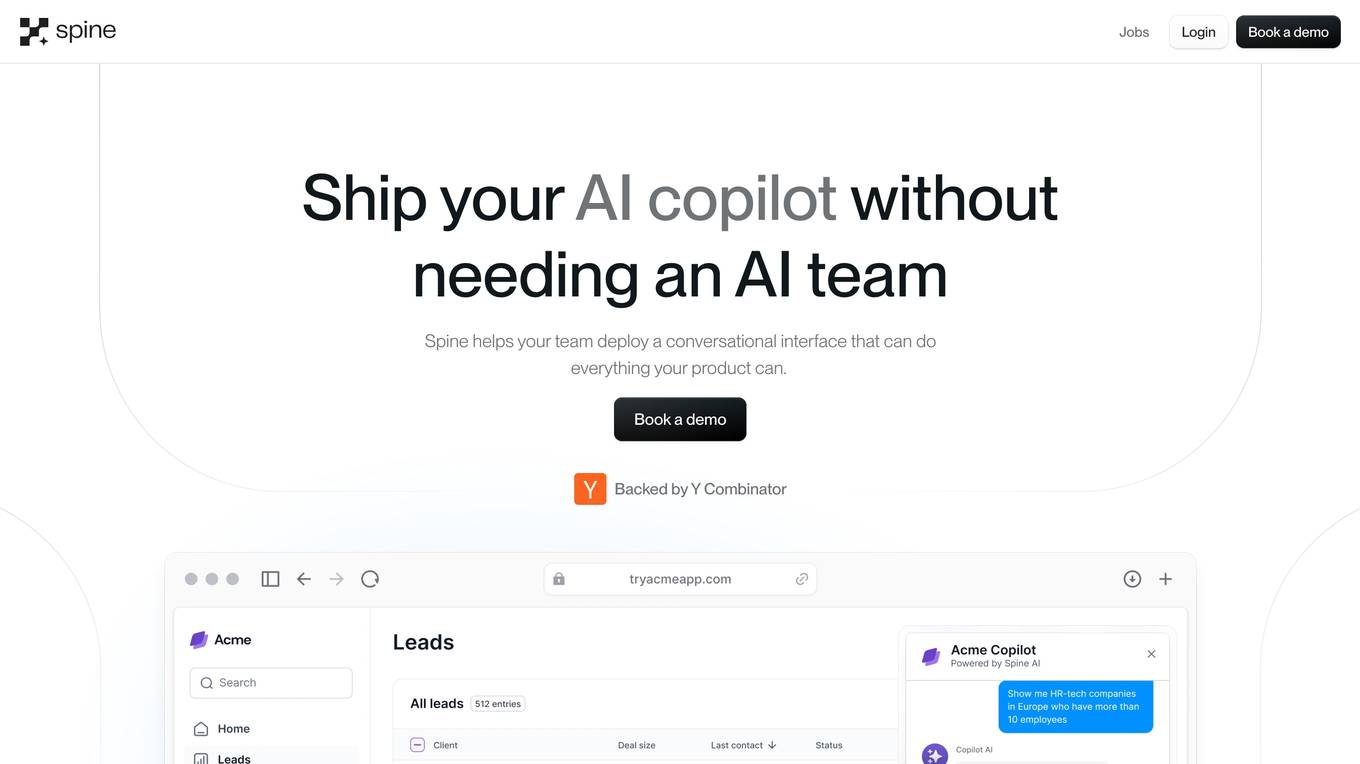
Spine AI
Spine AI is a reliable AI analyst tool that provides conversational analytics tailored to understand your business. It empowers decision-makers by offering customized insights, deep business intelligence, proactive notifications, and flexible dashboards. The tool is designed to help users make better decisions by leveraging a purpose-built Data Processing Unit (DPU) and a semantic layer for natural language interactions. With a focus on rigorous evaluation and security, Spine AI aims to deliver explainable and customizable AI solutions for businesses.
1 - Open Source AI Tools
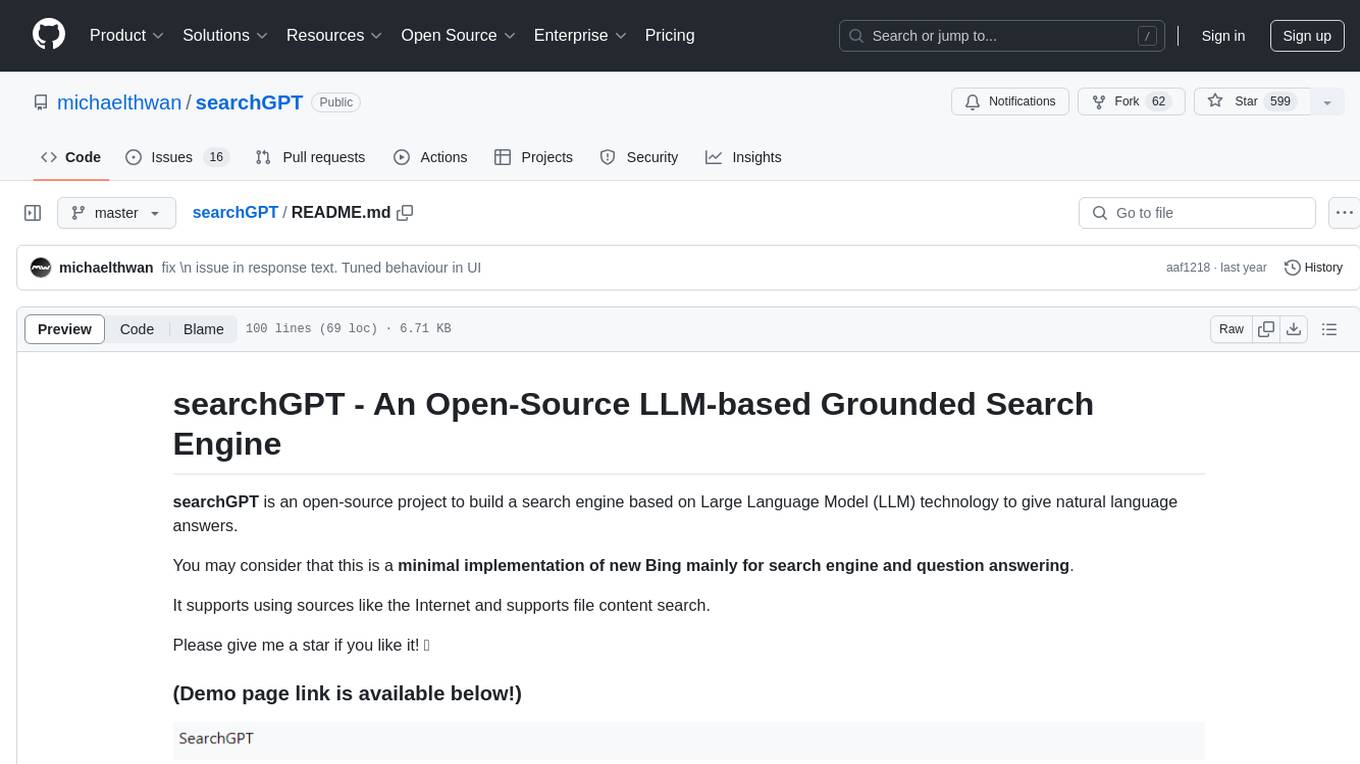
searchGPT
searchGPT is an open-source project that aims to build a search engine based on Large Language Model (LLM) technology to provide natural language answers. It supports web search with real-time results, file content search, and semantic search from sources like the Internet. The tool integrates LLM technologies such as OpenAI and GooseAI, and offers an easy-to-use frontend user interface. The project is designed to provide grounded answers by referencing real-time factual information, addressing the limitations of LLM's training data. Contributions, especially from frontend developers, are welcome under the MIT License.
20 - OpenAI Gpts
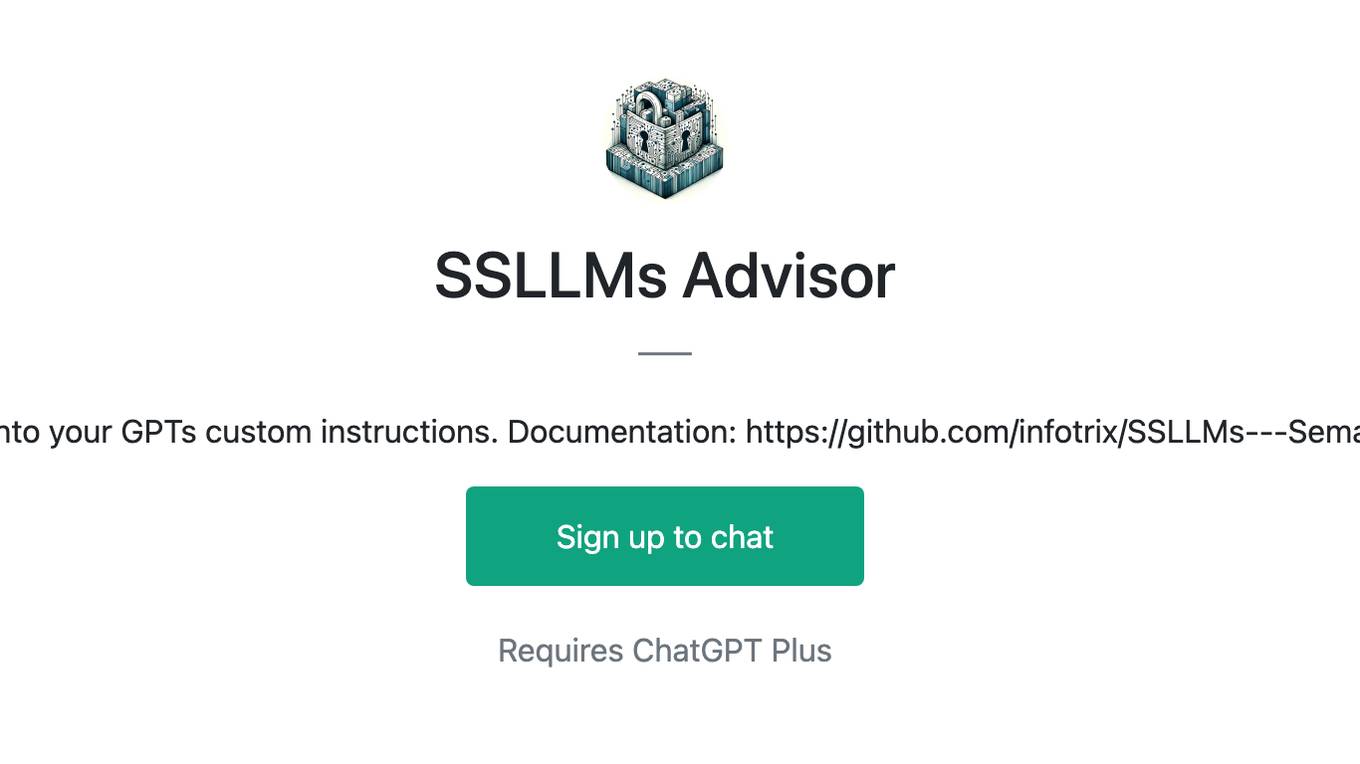
SSLLMs Advisor
Helps you build logic security into your GPTs custom instructions. Documentation: https://github.com/infotrix/SSLLMs---Semantic-Secuirty-for-LLM-GPTs
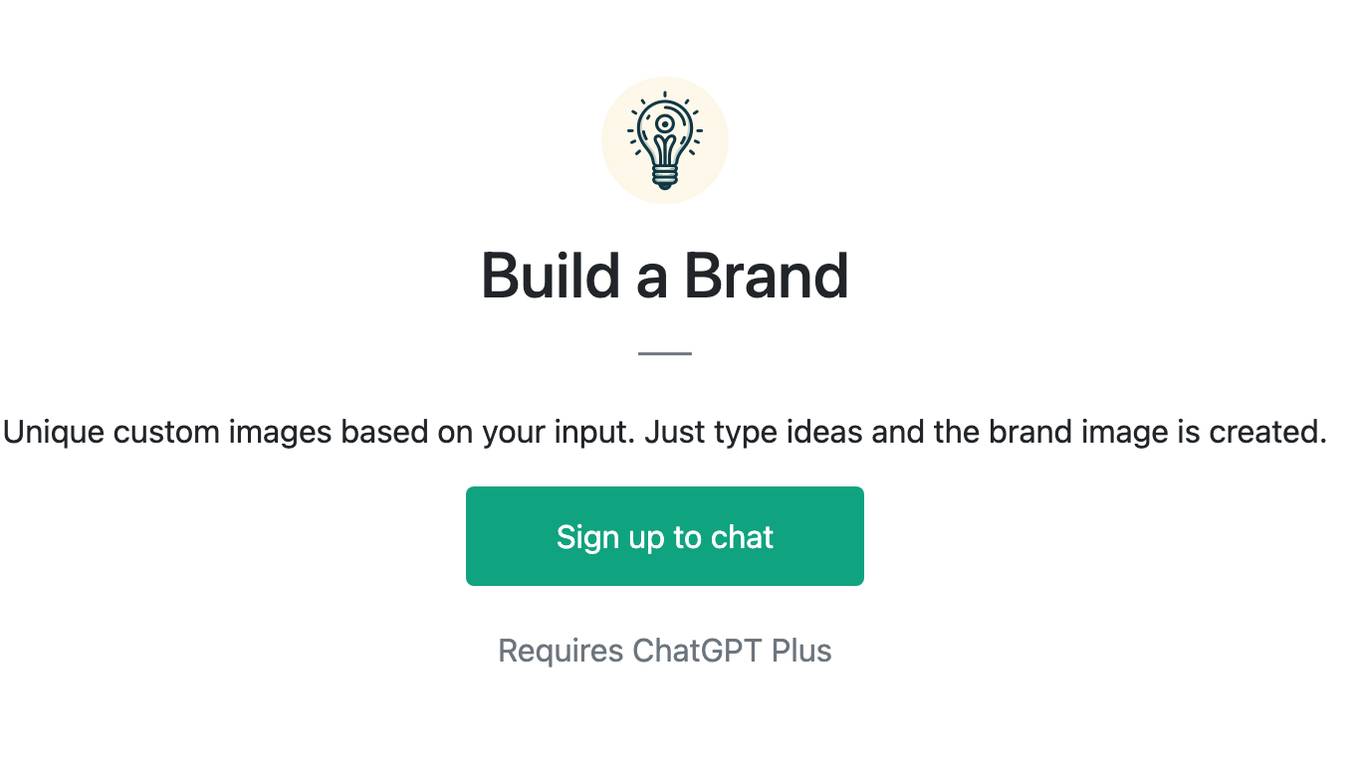
Build a Brand
Unique custom images based on your input. Just type ideas and the brand image is created.
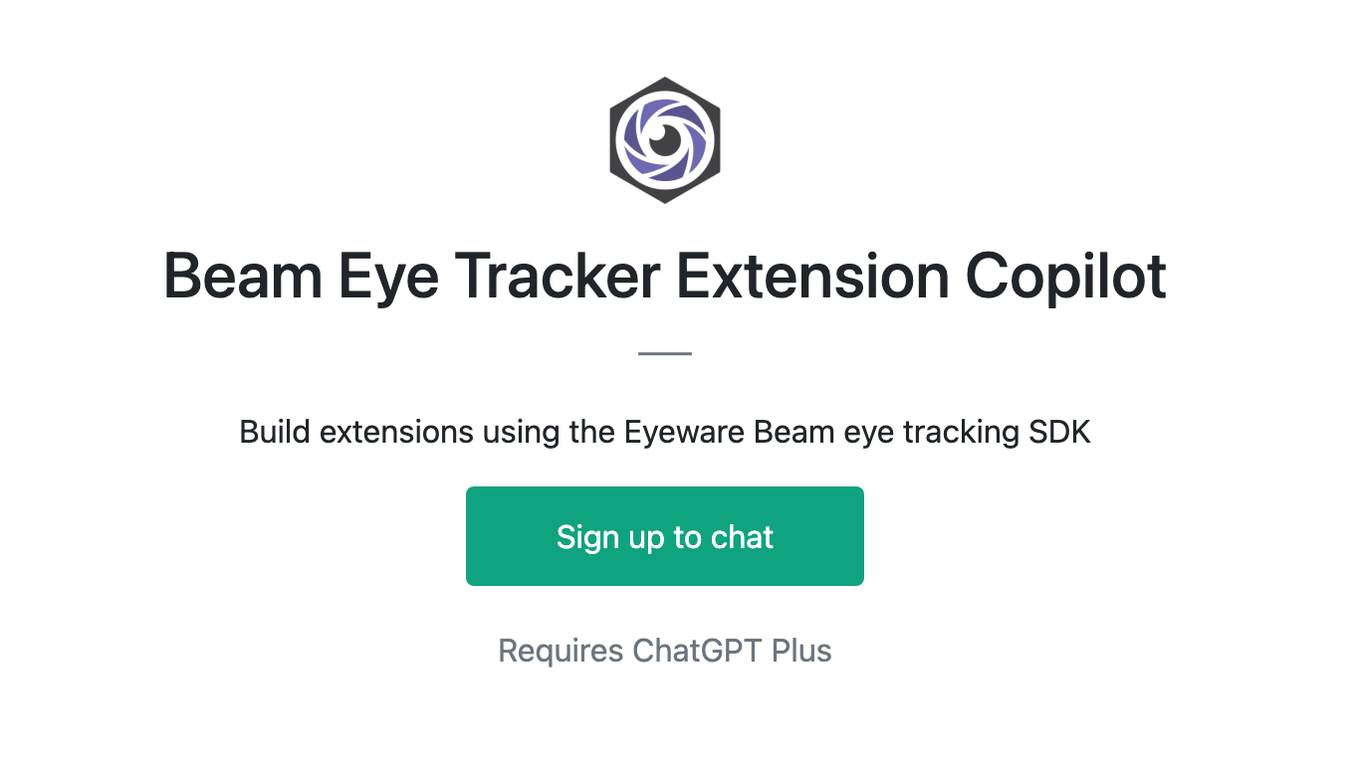
Beam Eye Tracker Extension Copilot
Build extensions using the Eyeware Beam eye tracking SDK

Business Model Canvas Strategist
Business Model Canvas Creator - Build and evaluate your business model

League Champion Builder GPT
Build your own League of Legends Style Champion with Abilities, Back Story and Splash Art
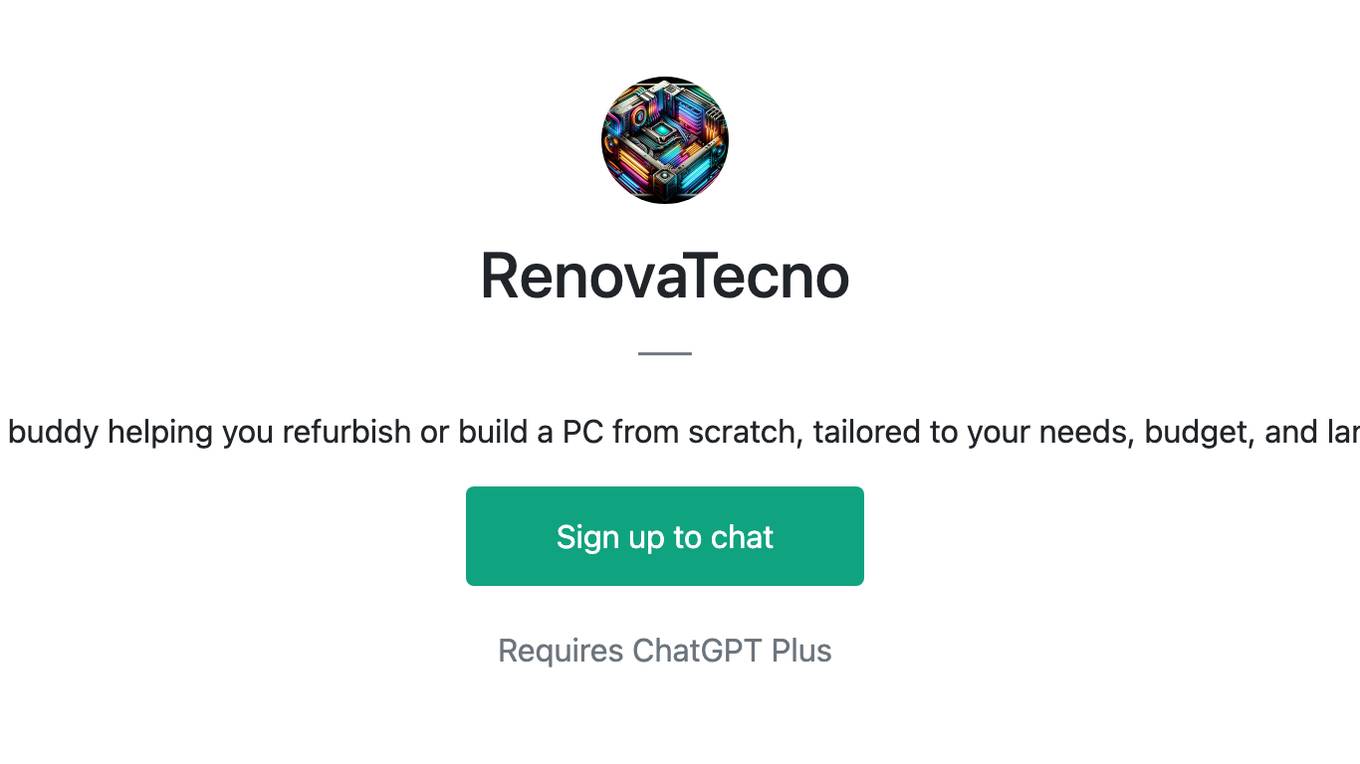
RenovaTecno
Your tech buddy helping you refurbish or build a PC from scratch, tailored to your needs, budget, and language.
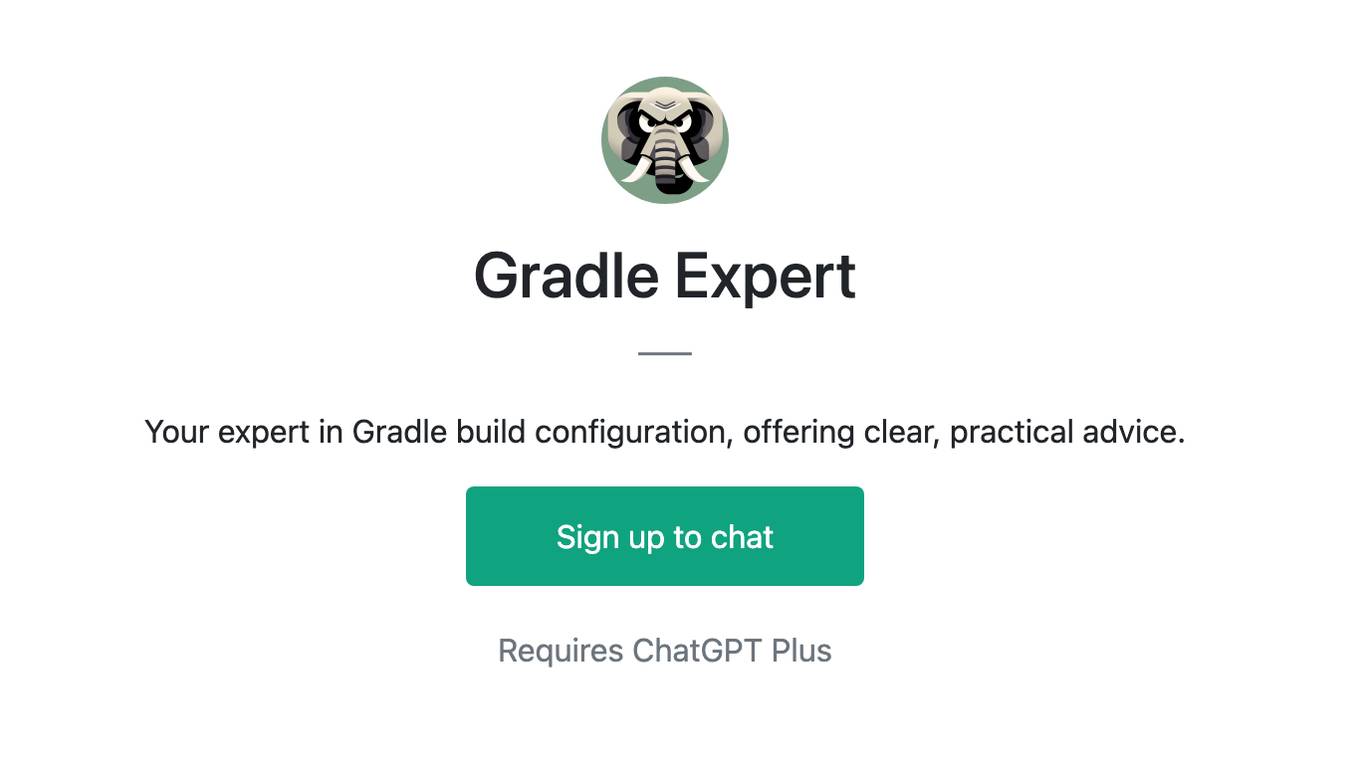
Gradle Expert
Your expert in Gradle build configuration, offering clear, practical advice.
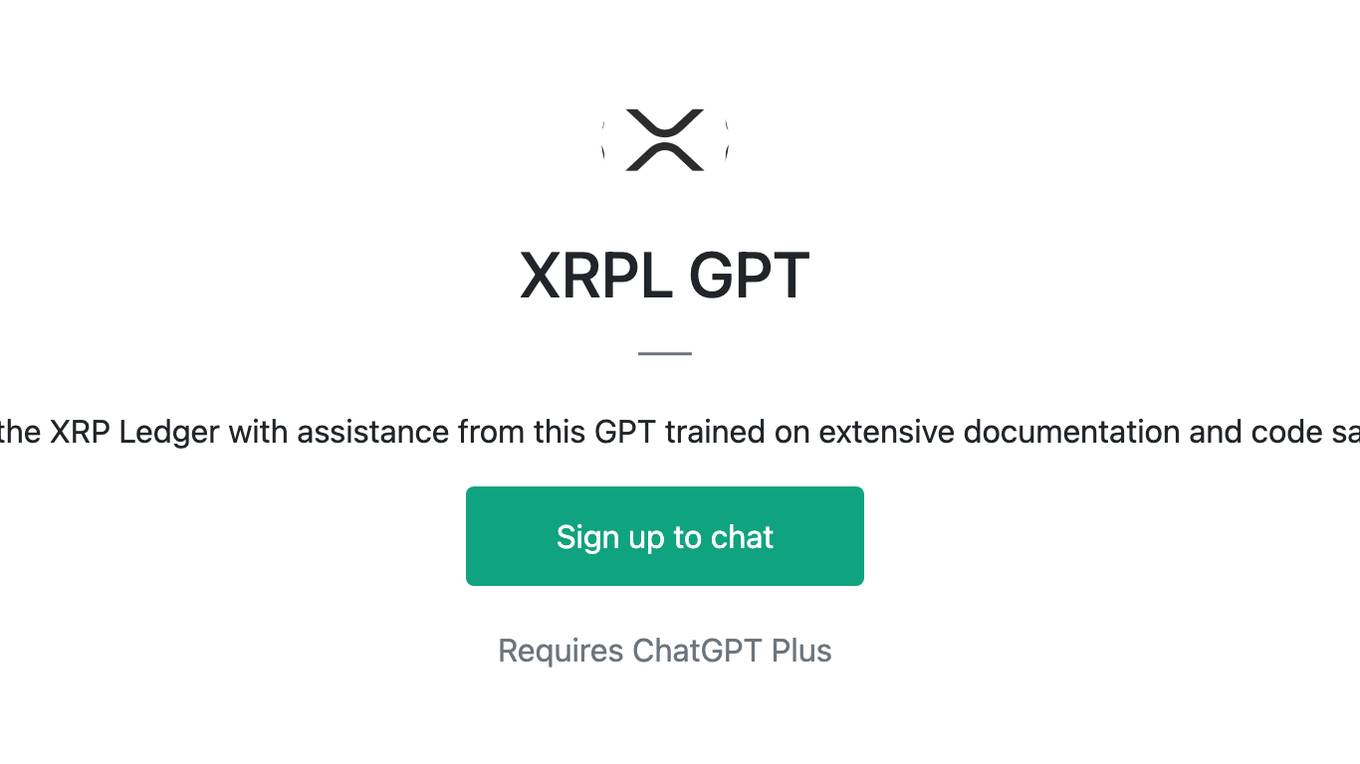
XRPL GPT
Build on the XRP Ledger with assistance from this GPT trained on extensive documentation and code samples.
